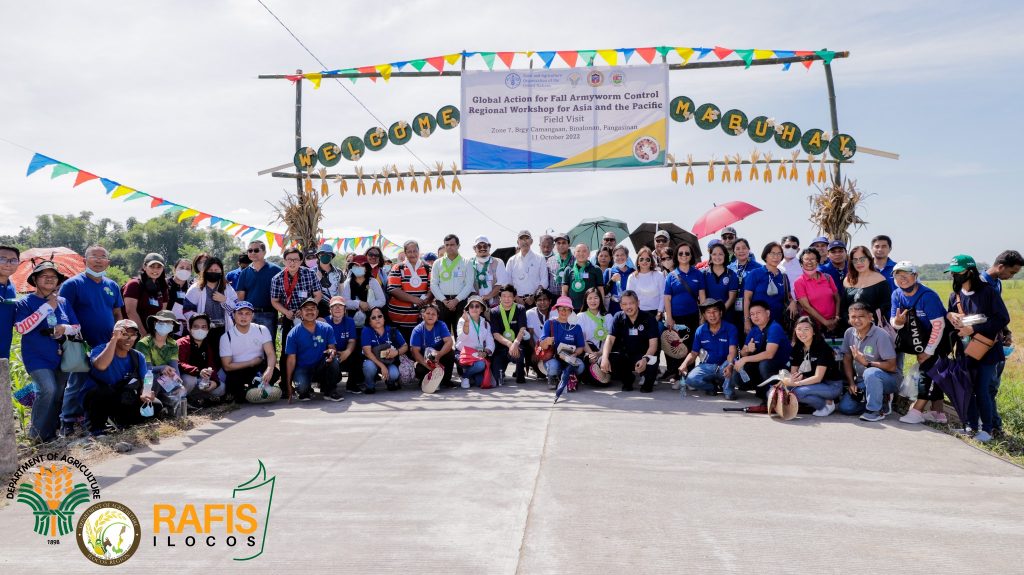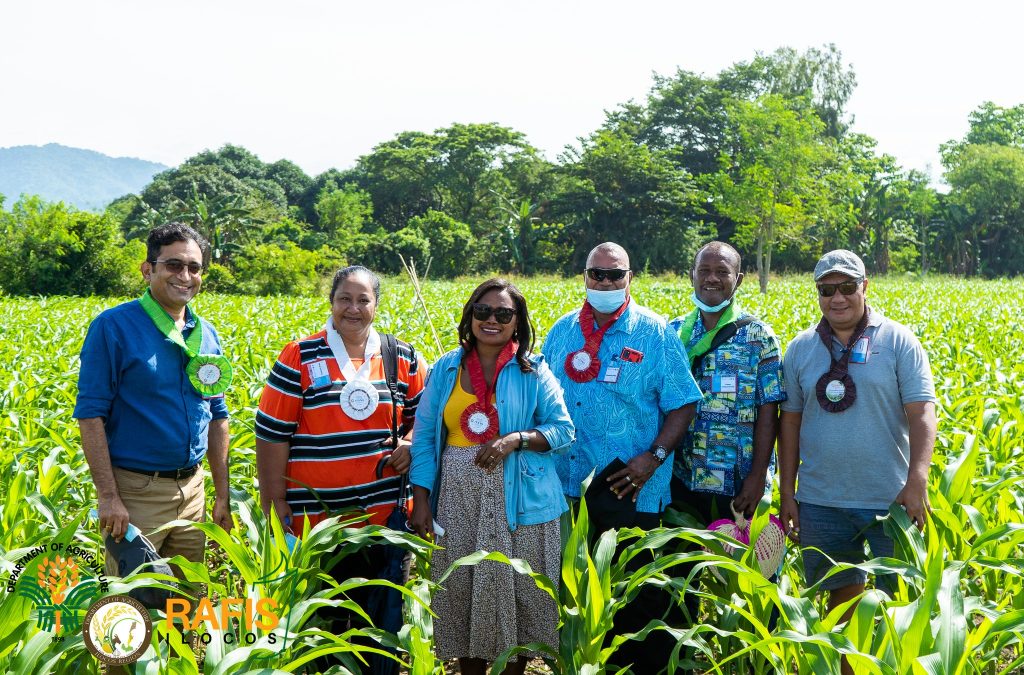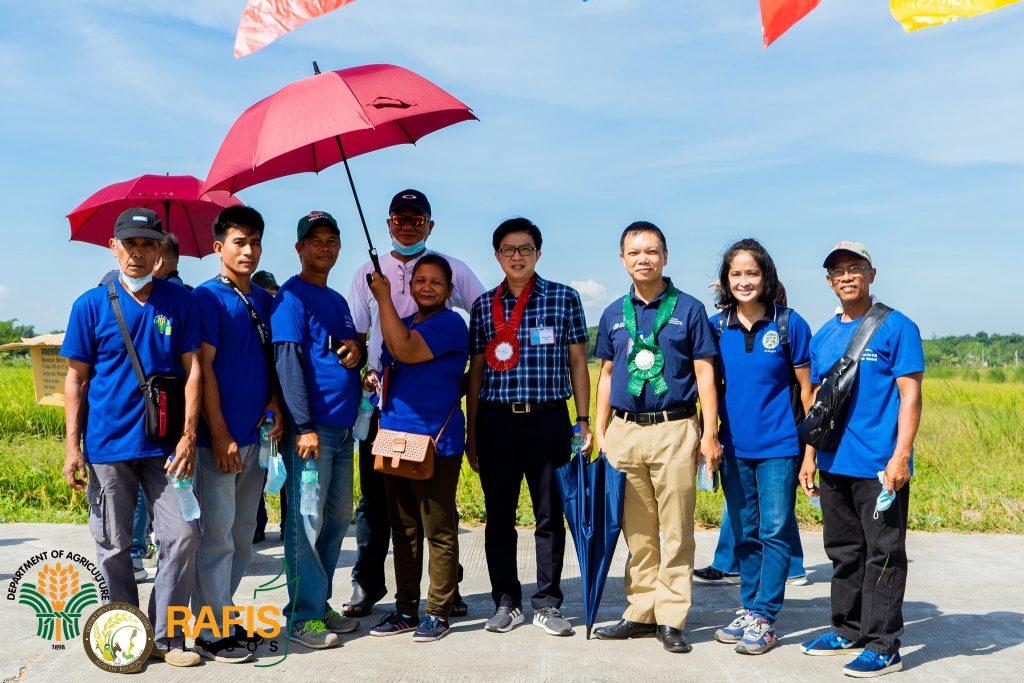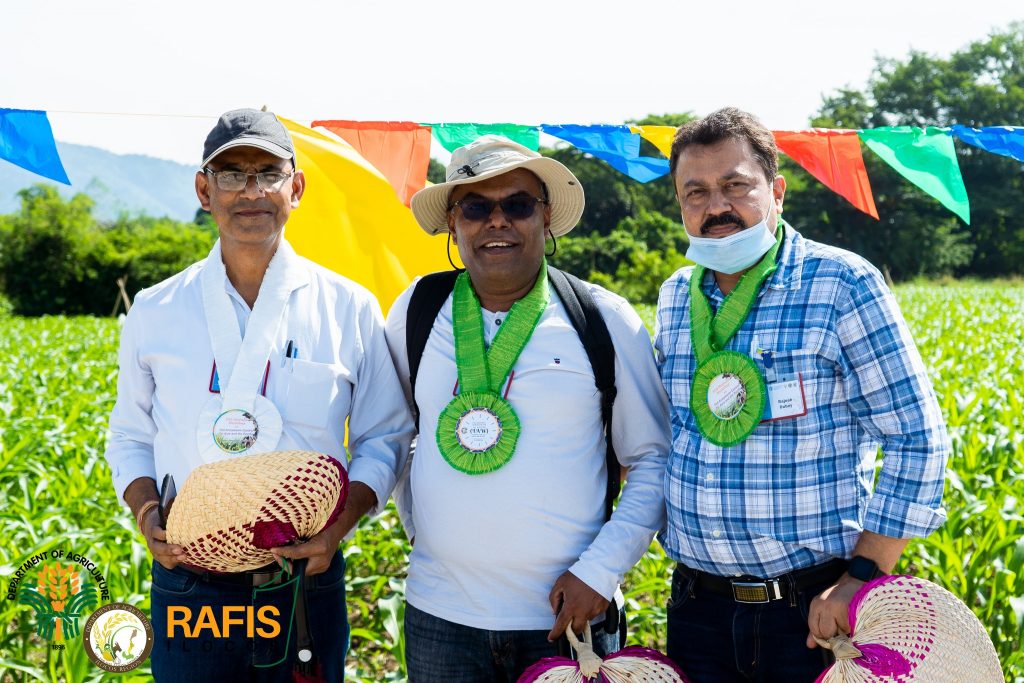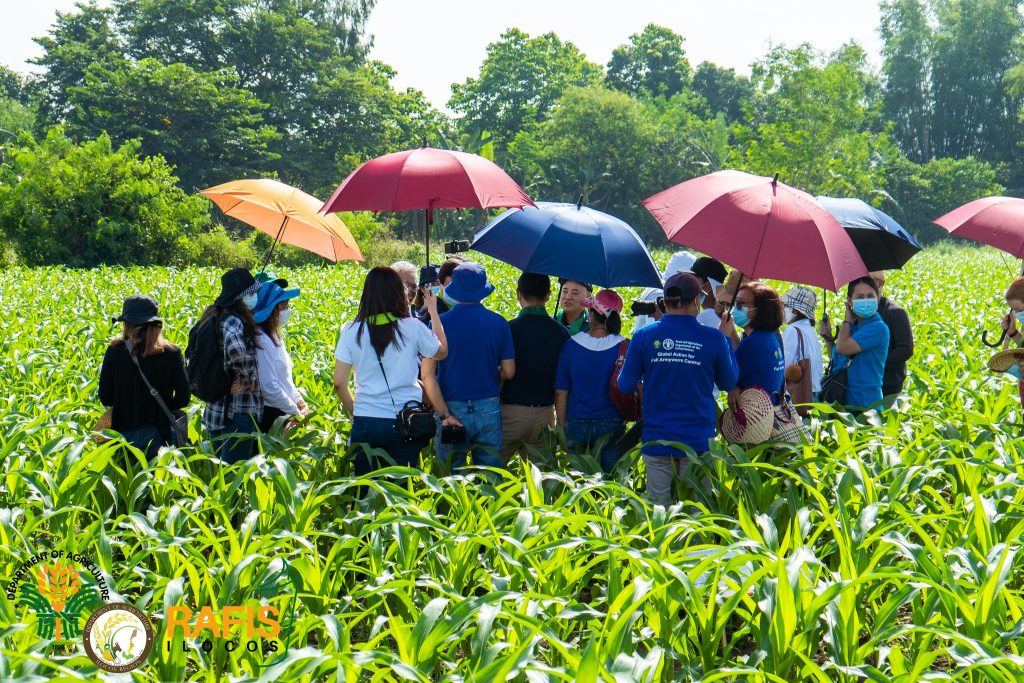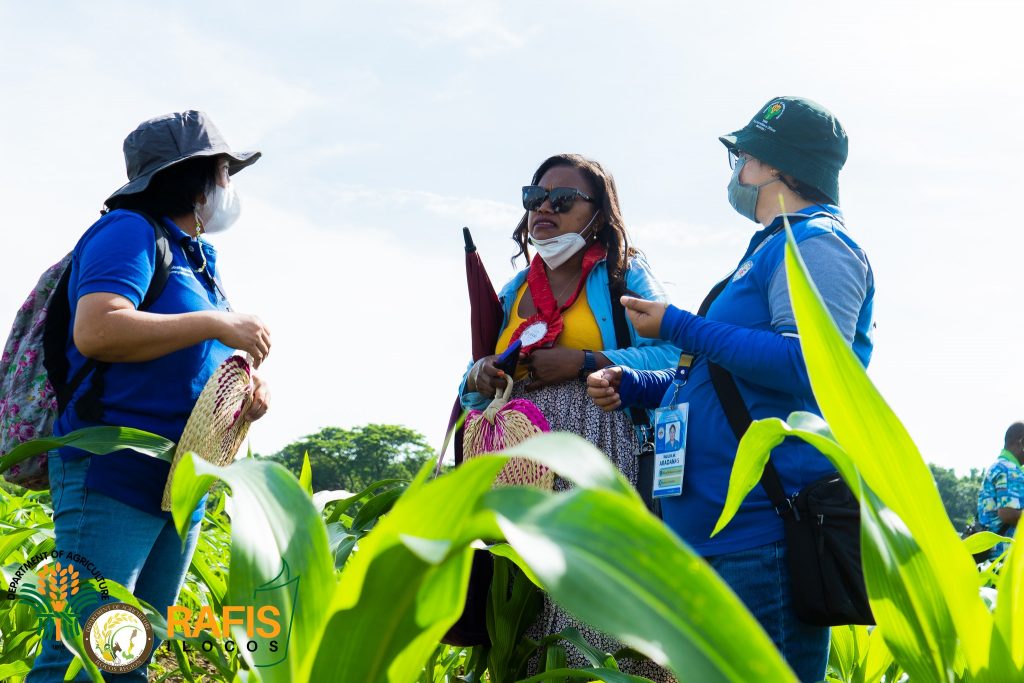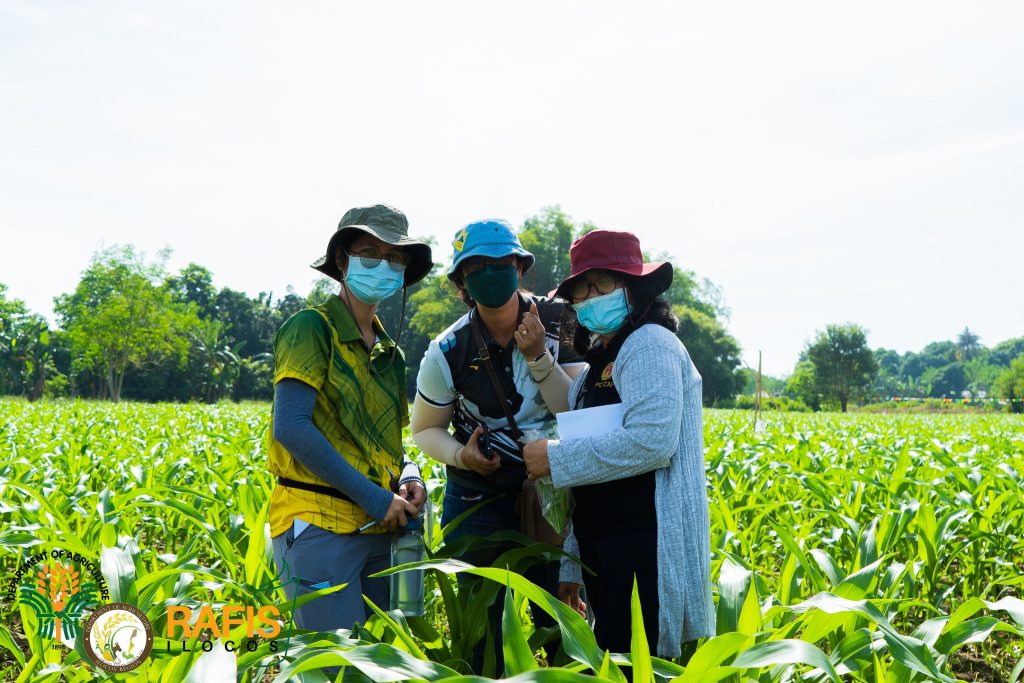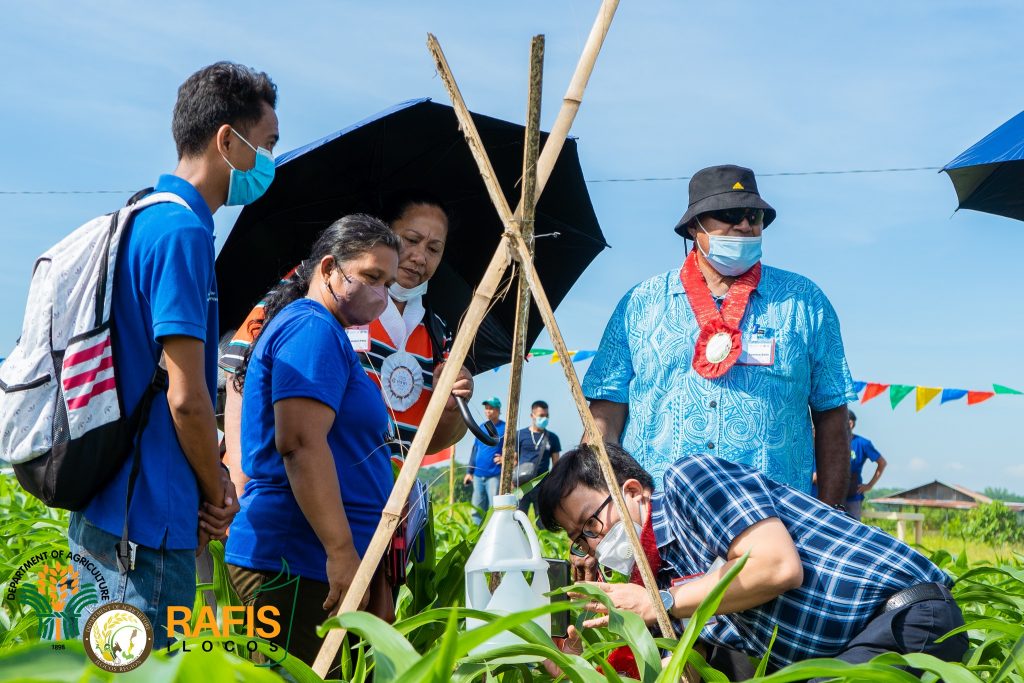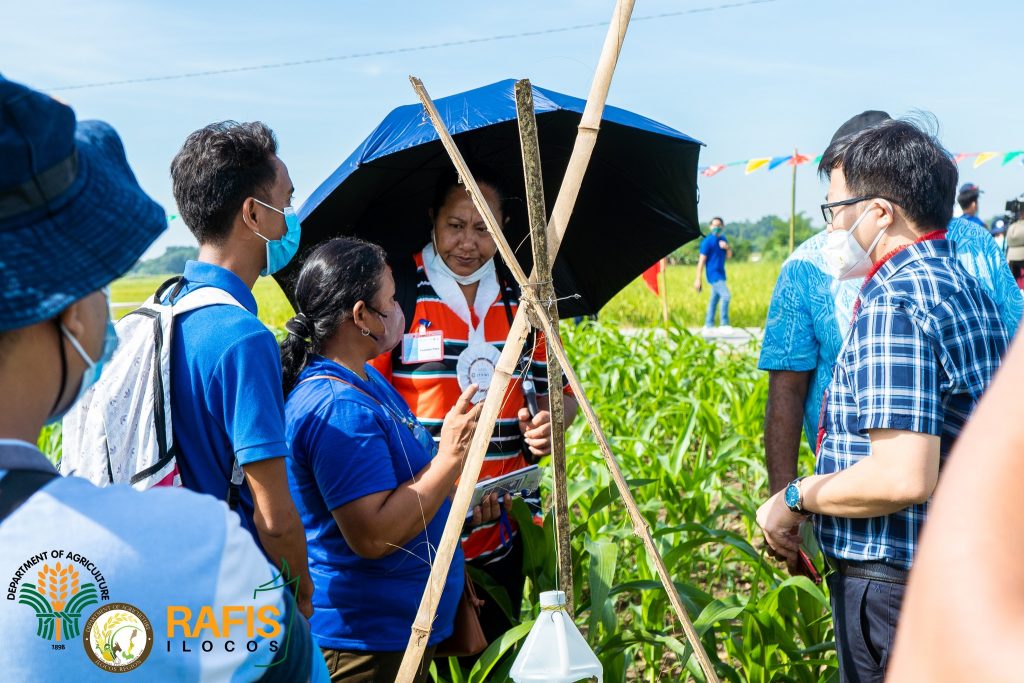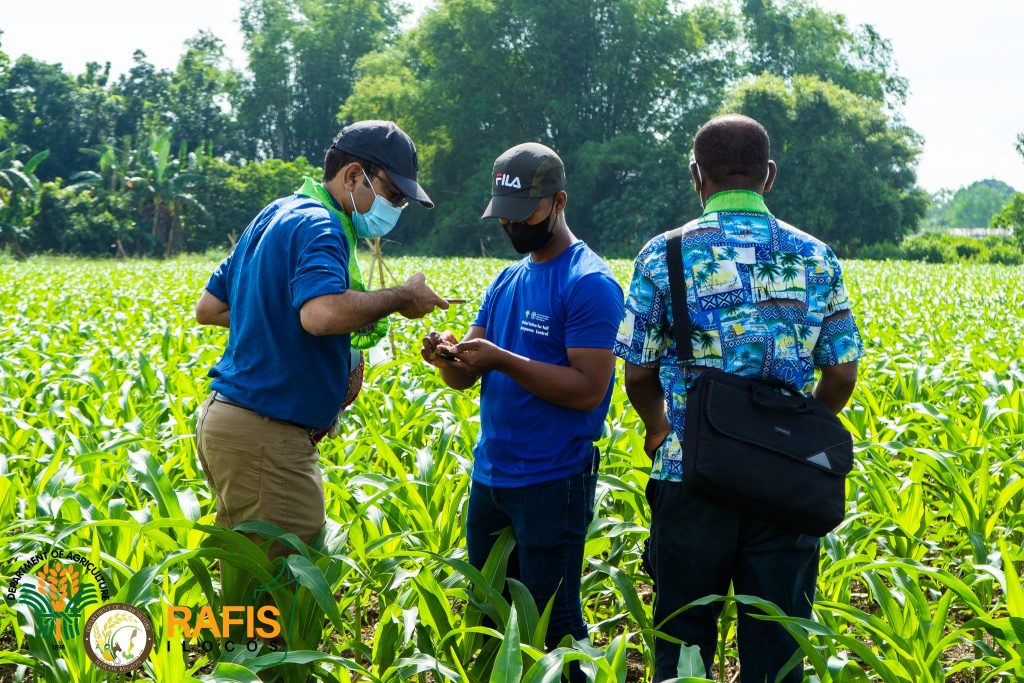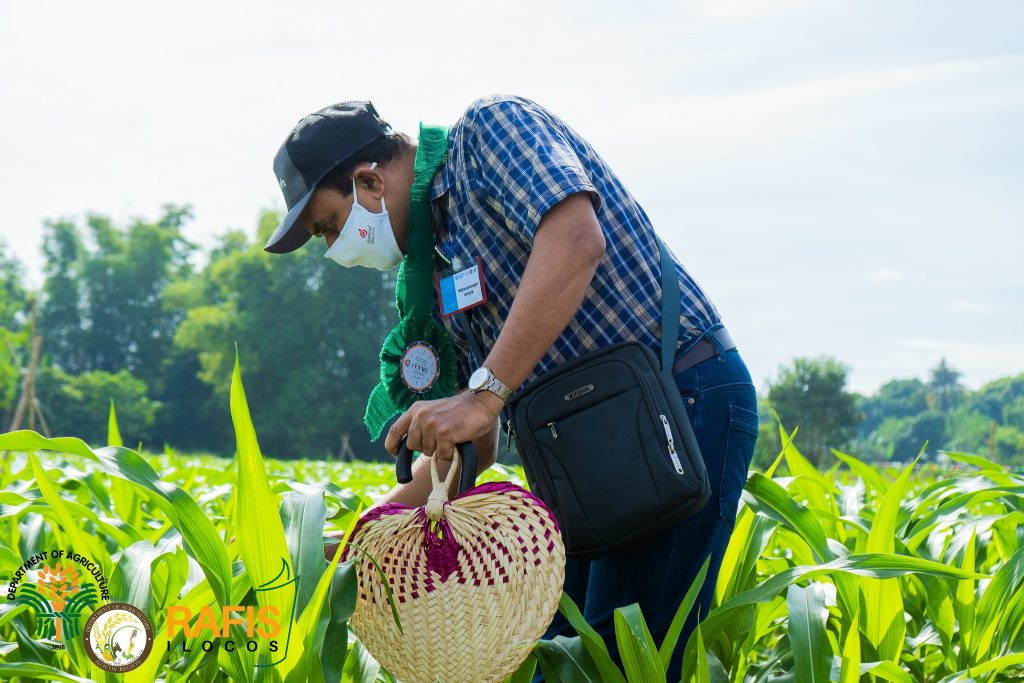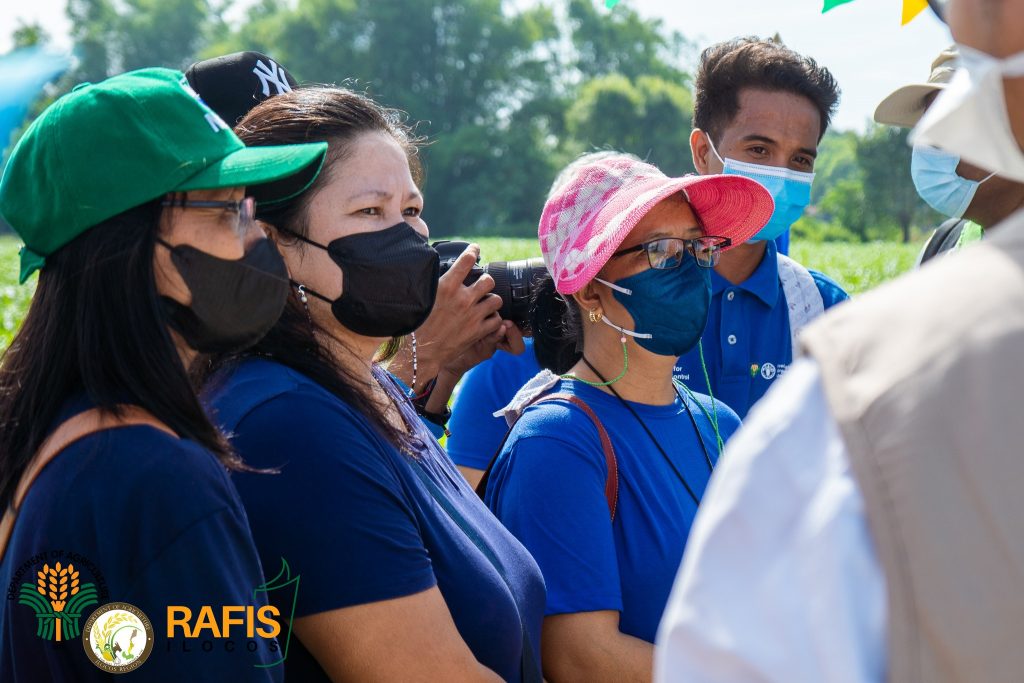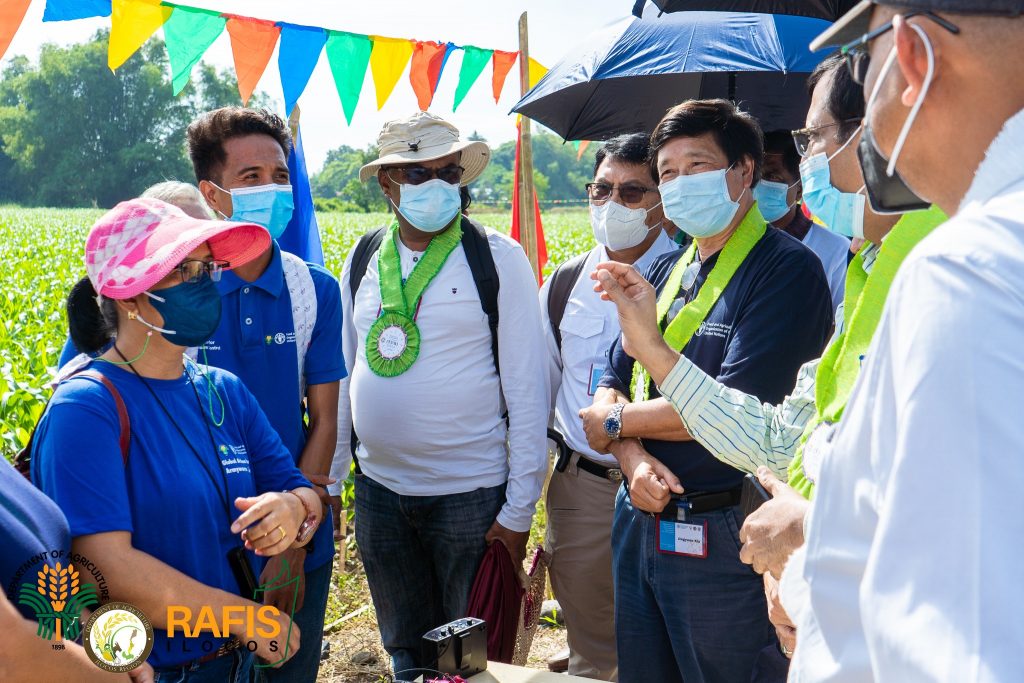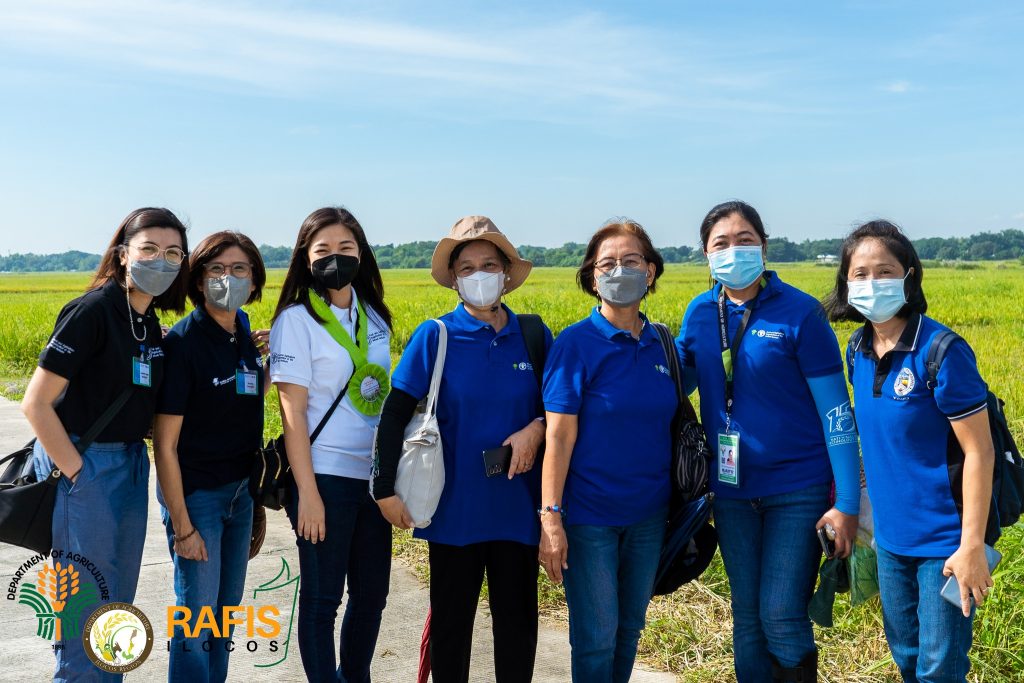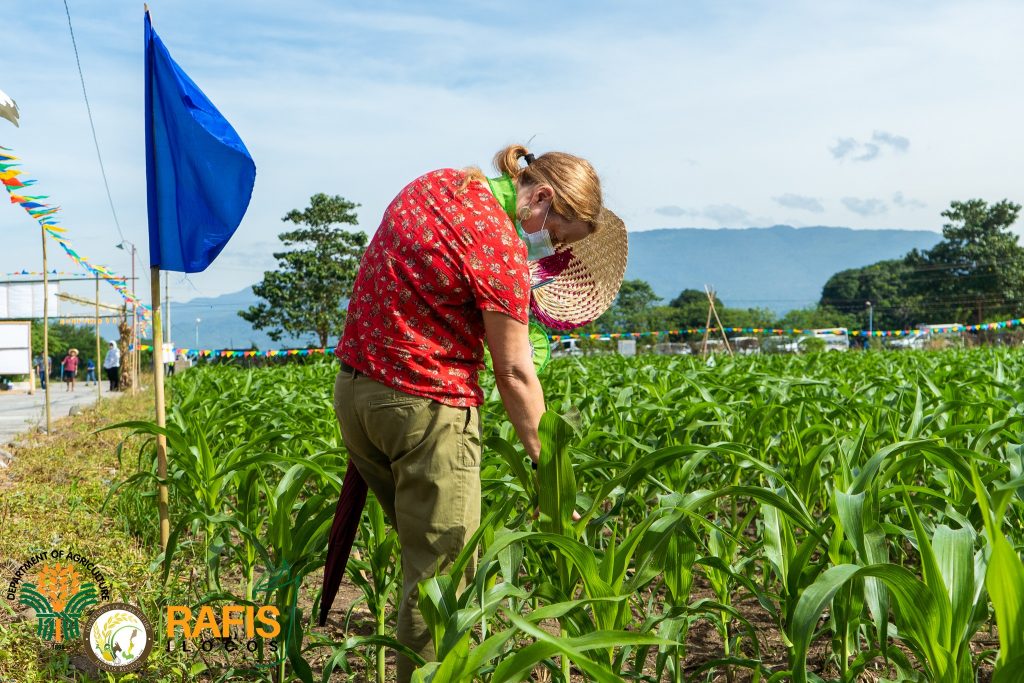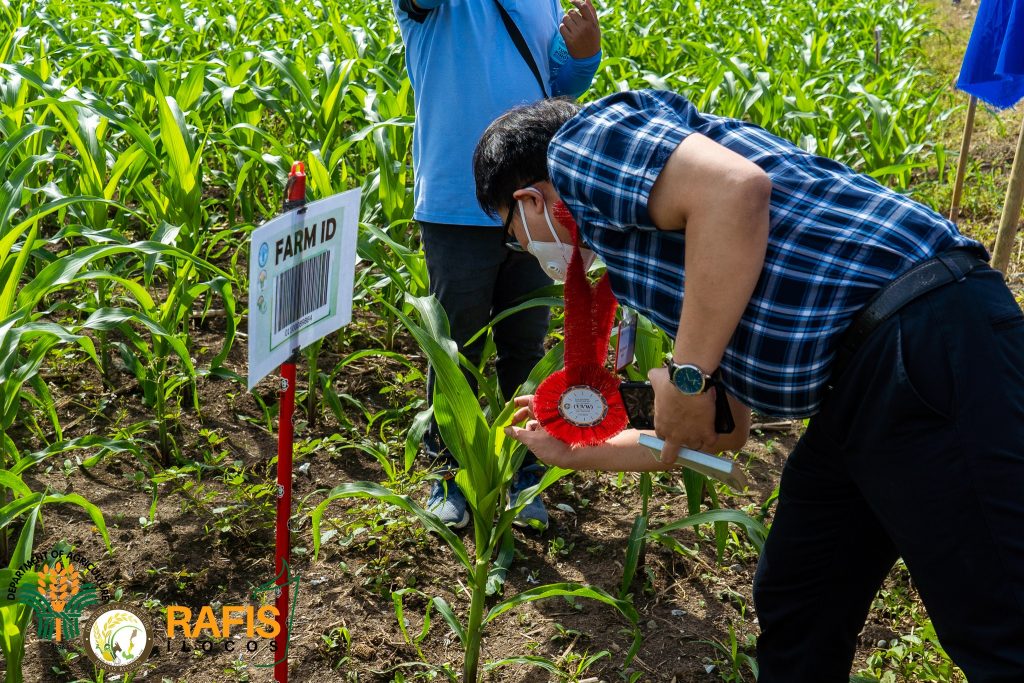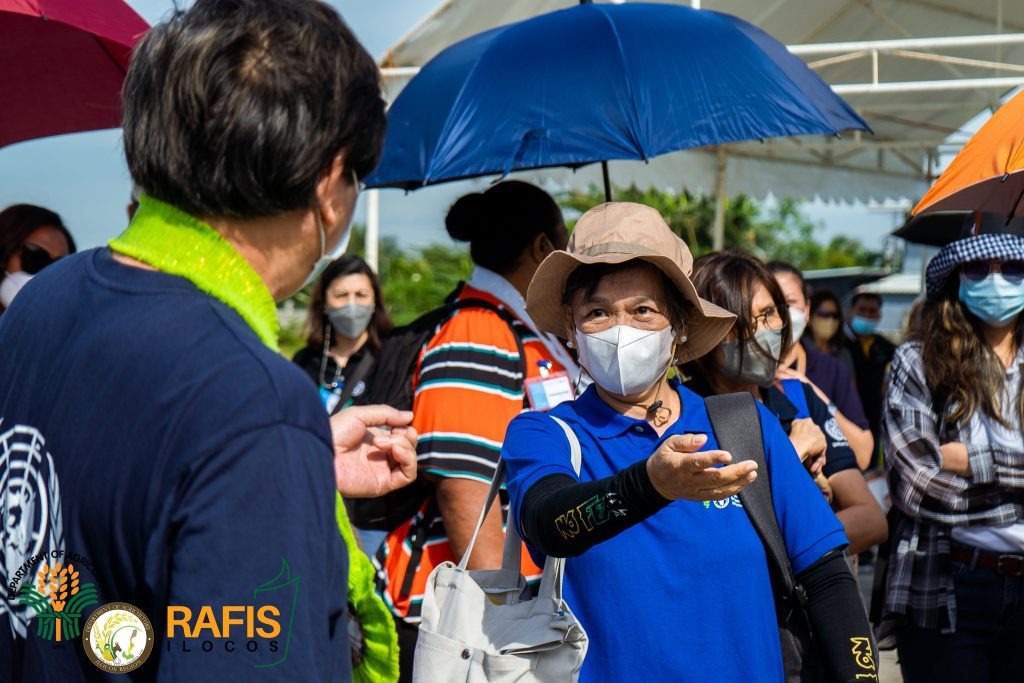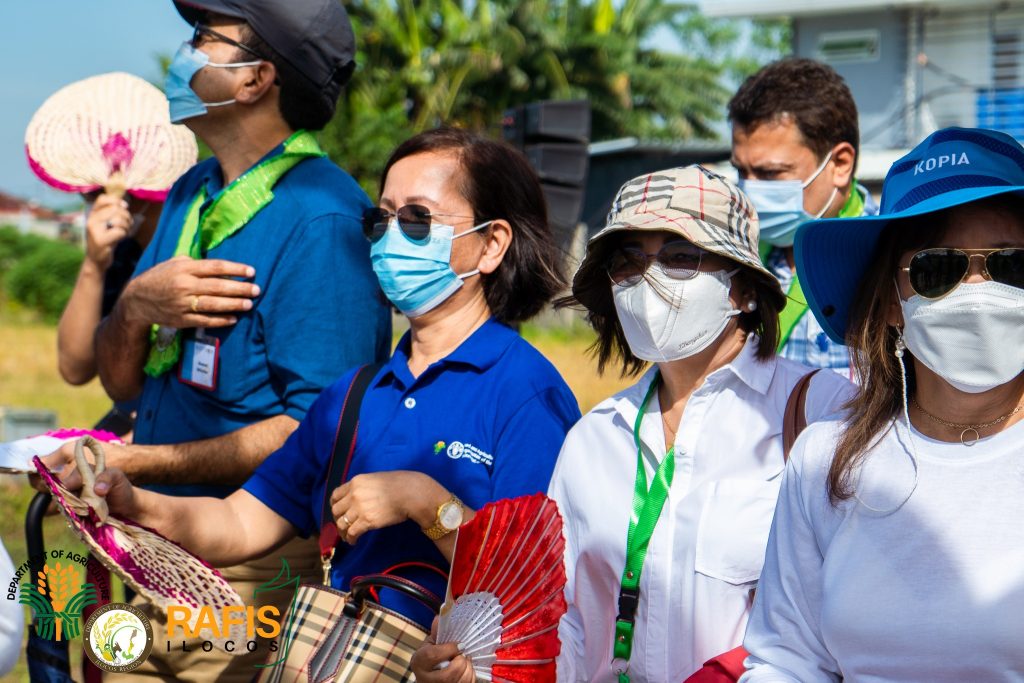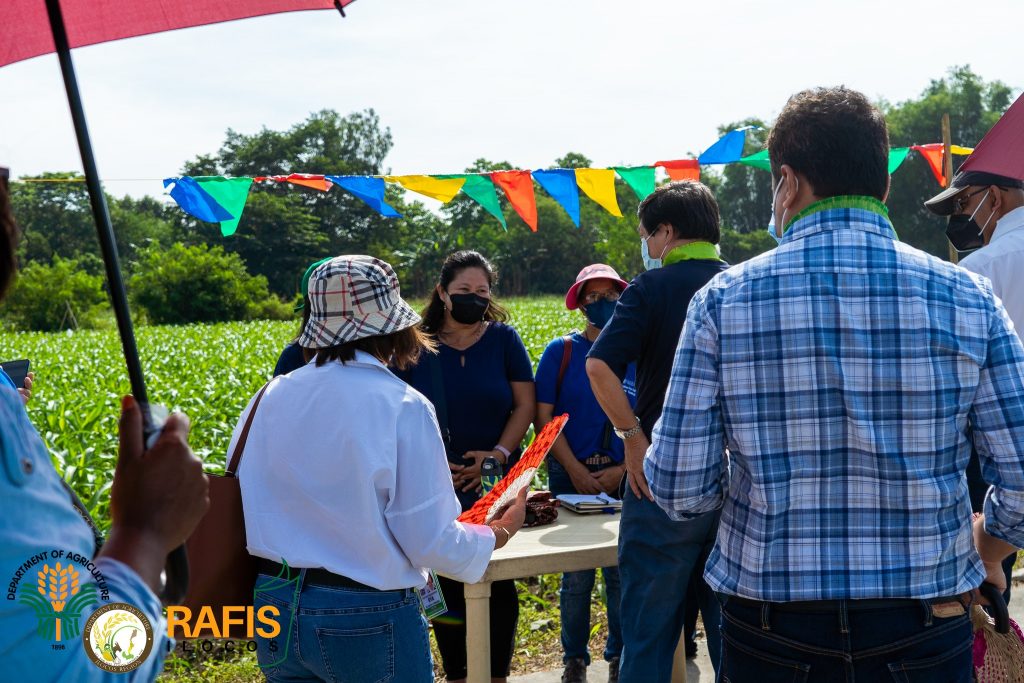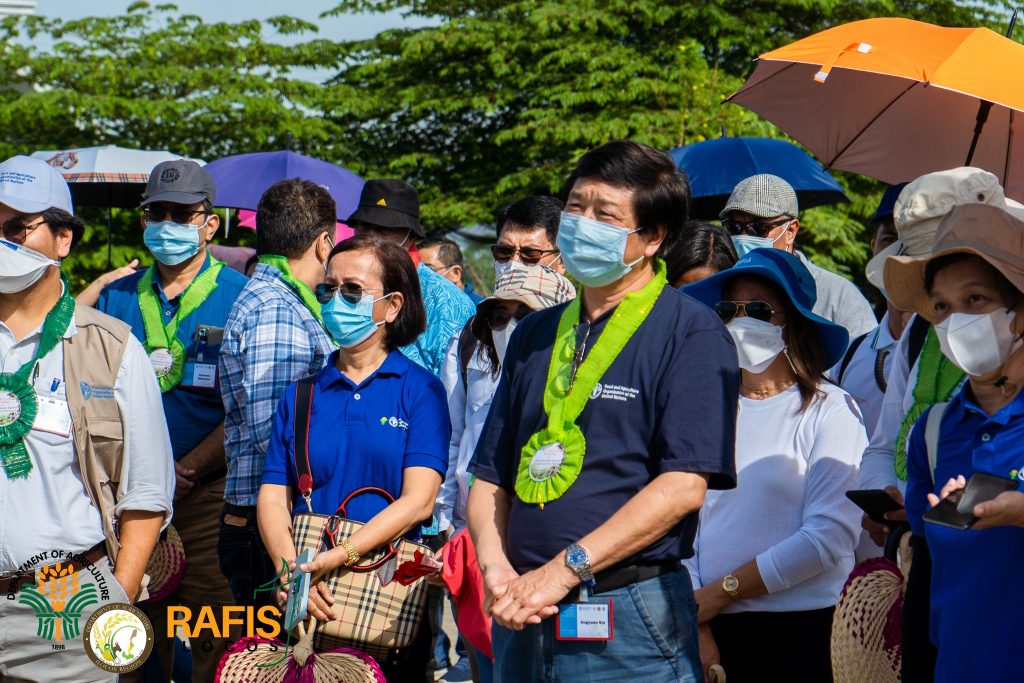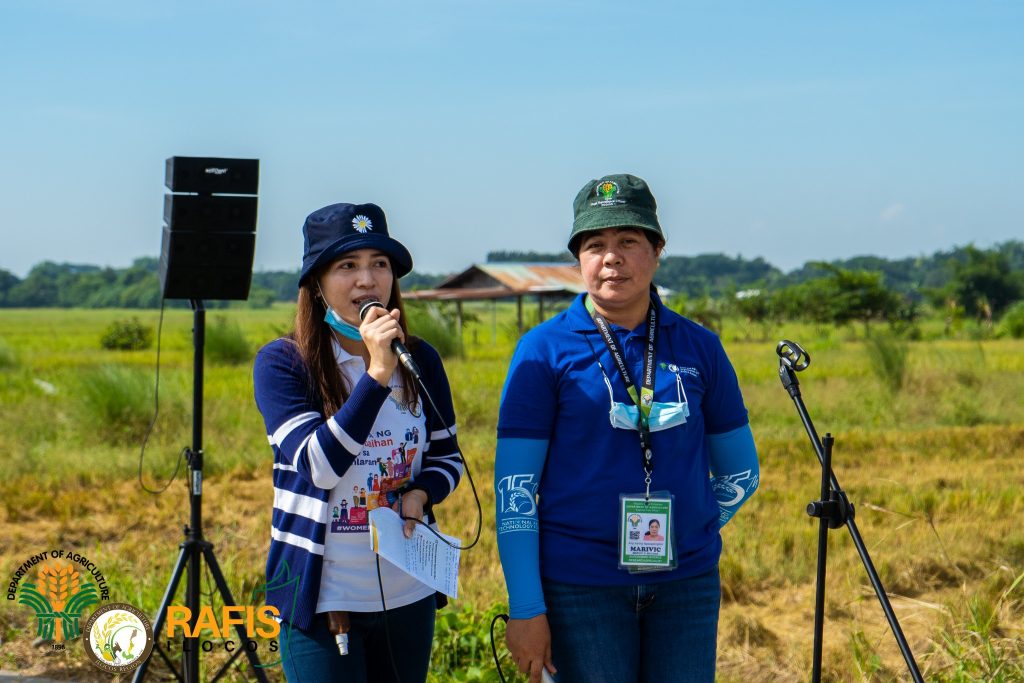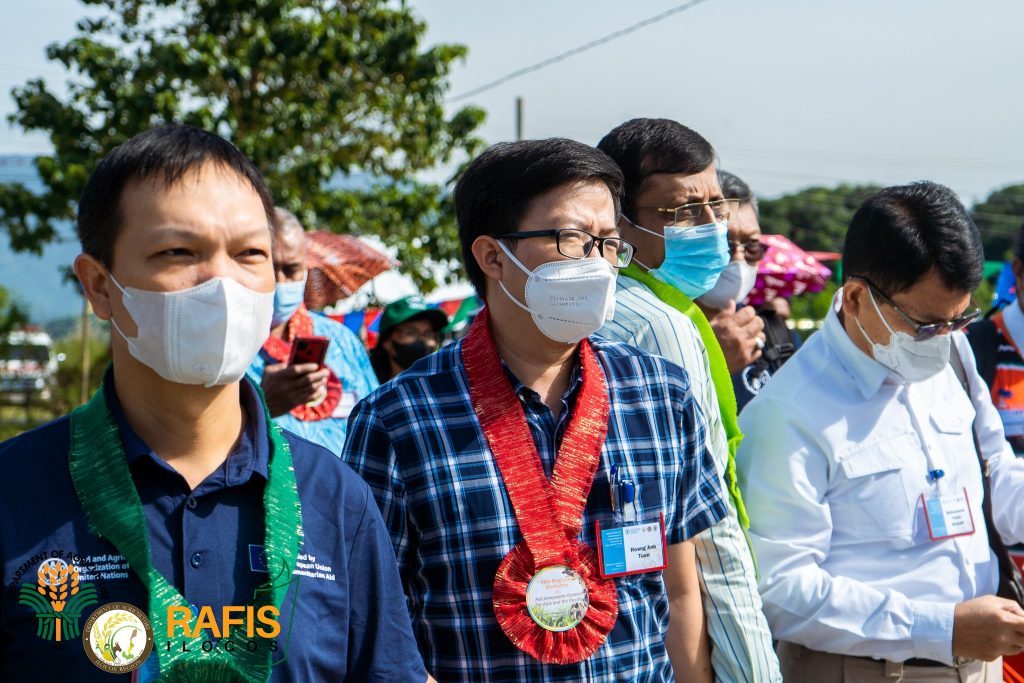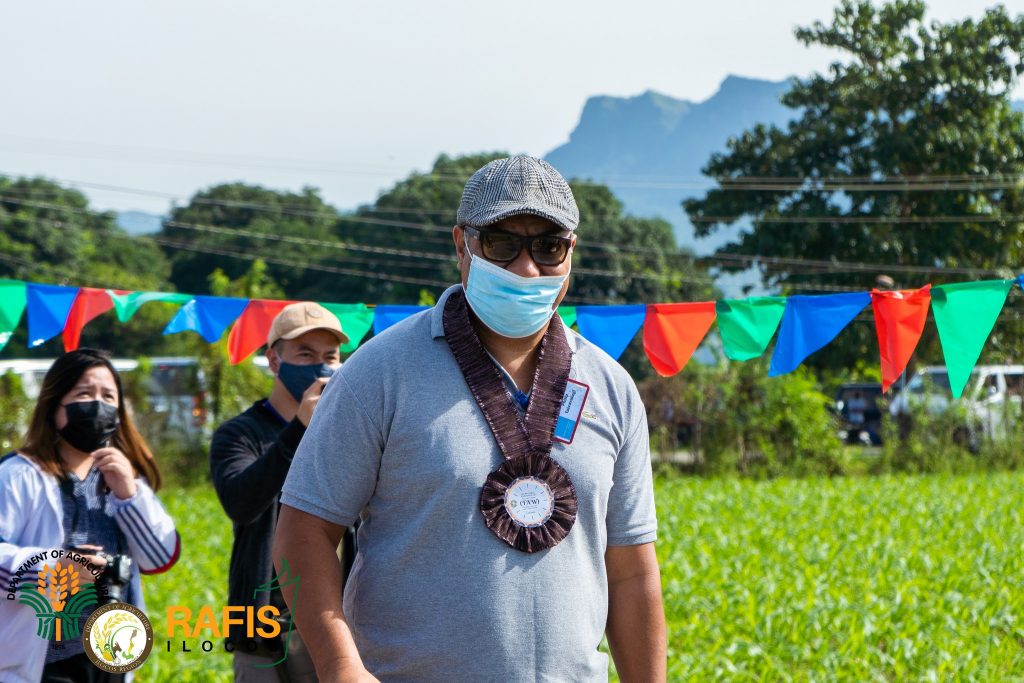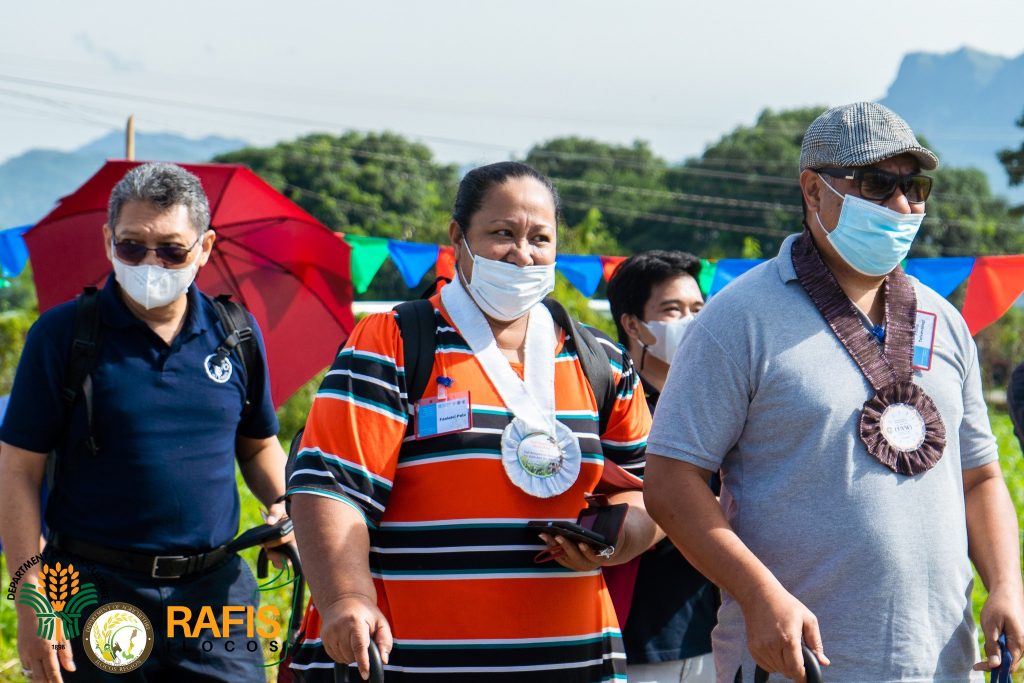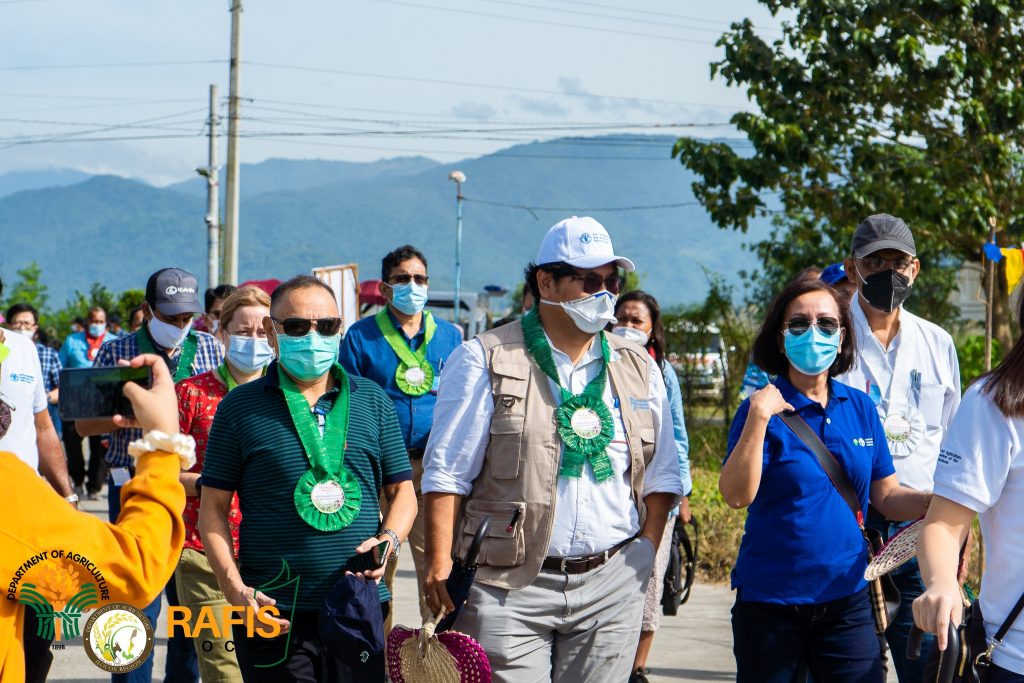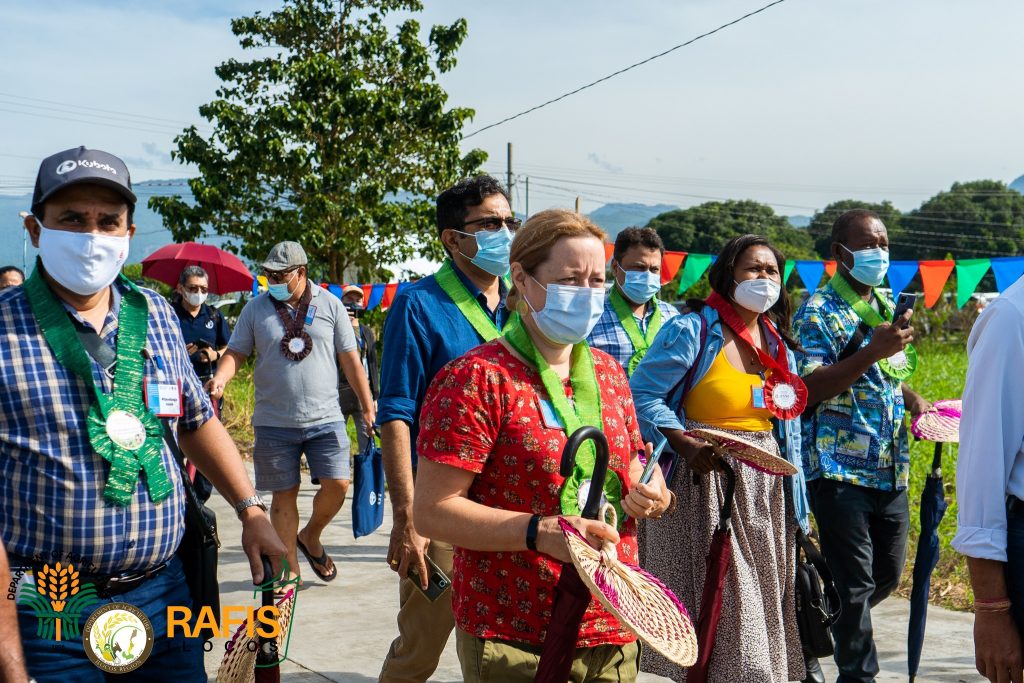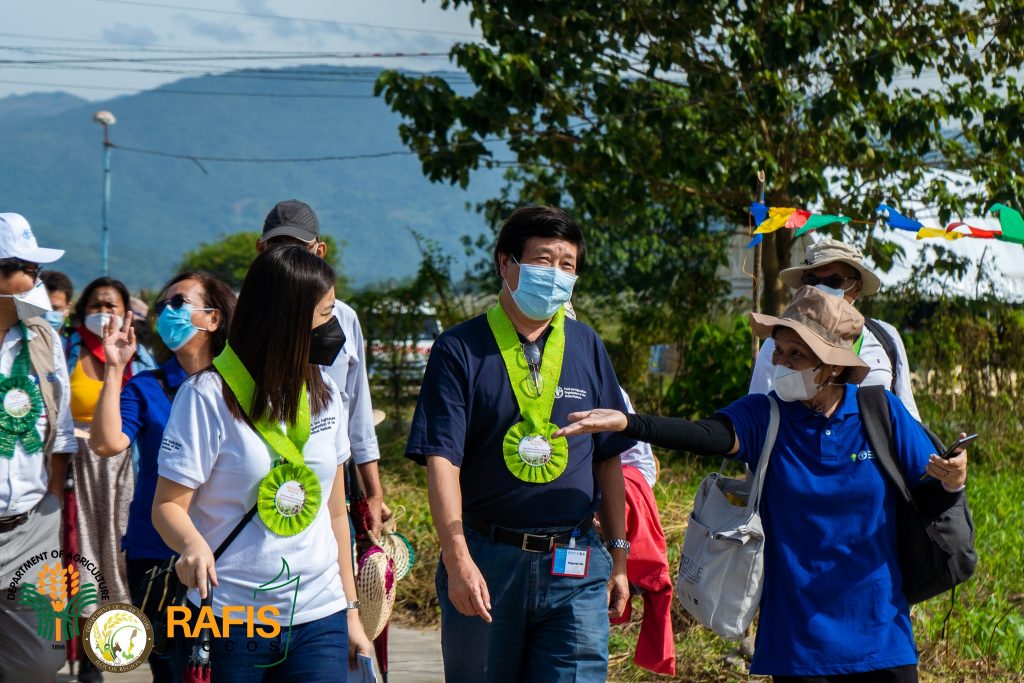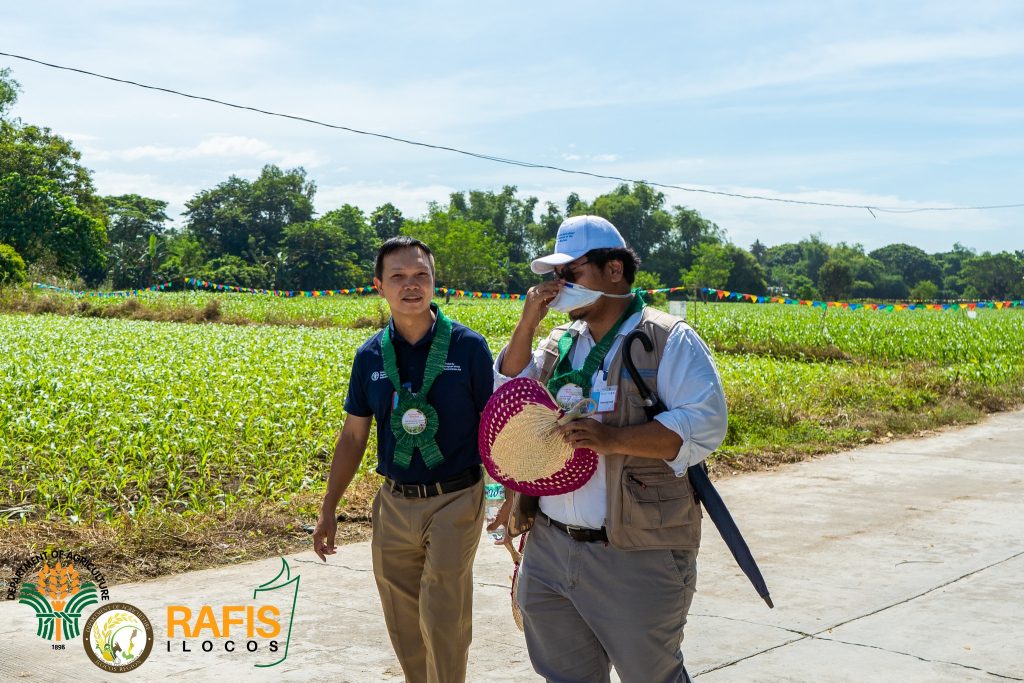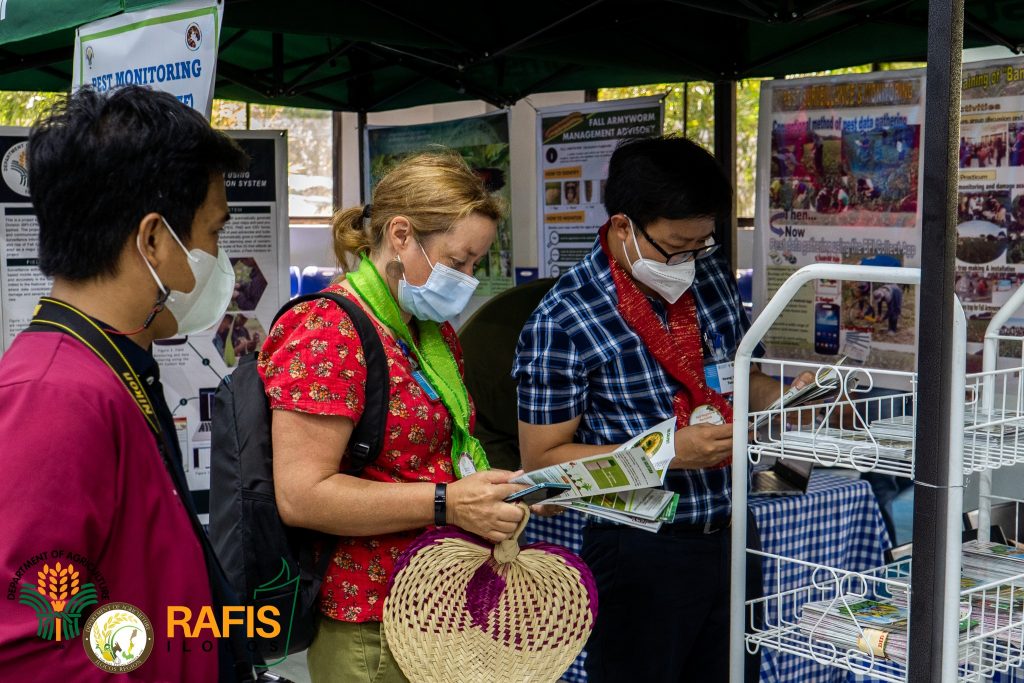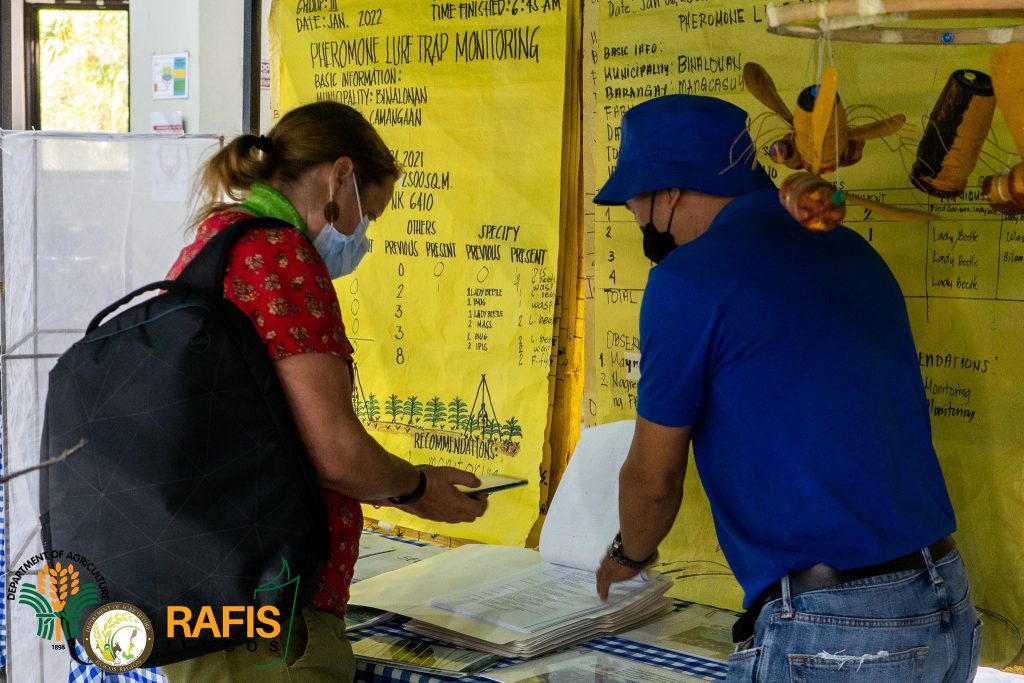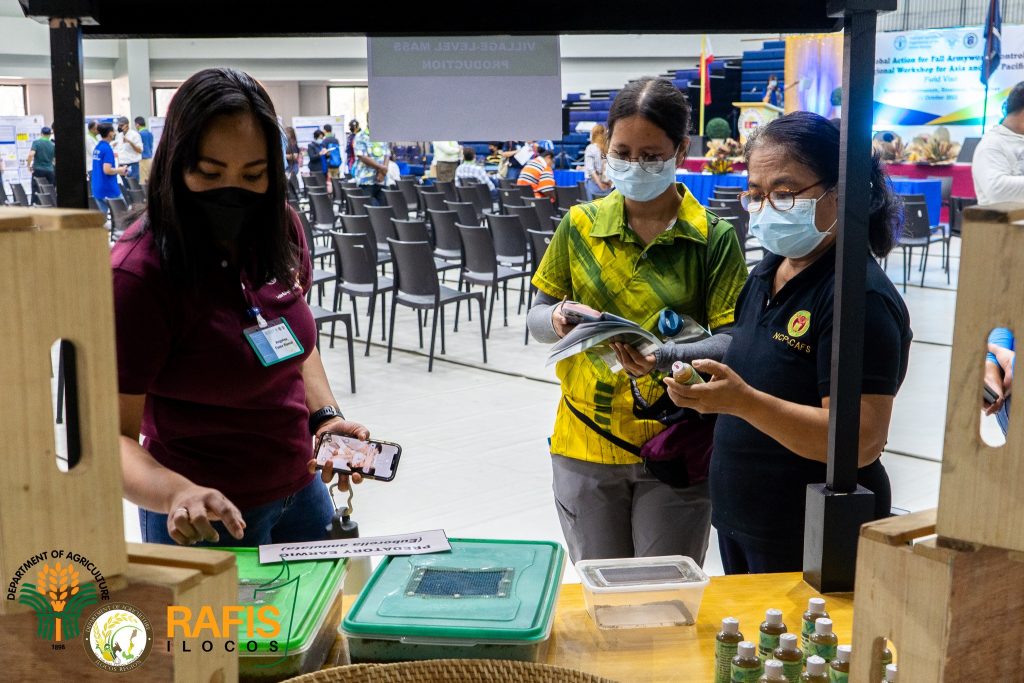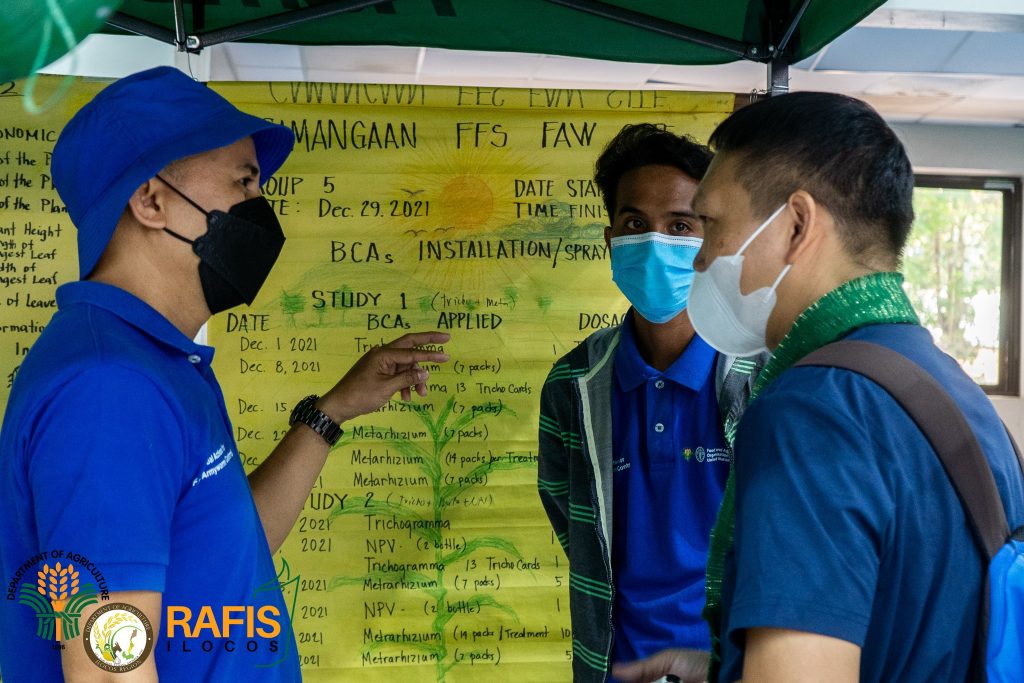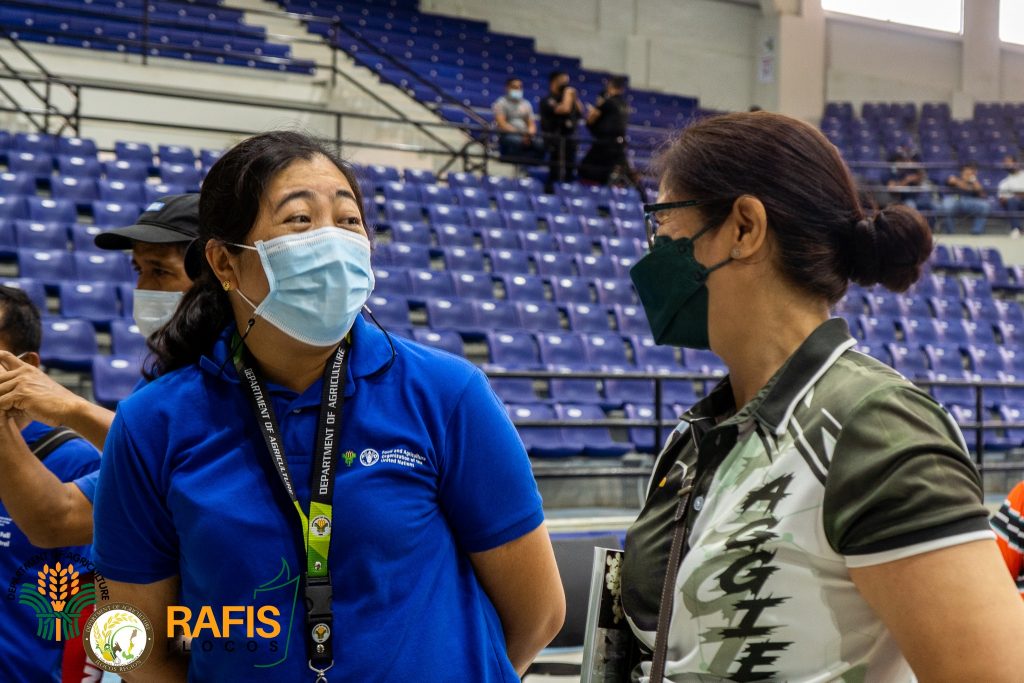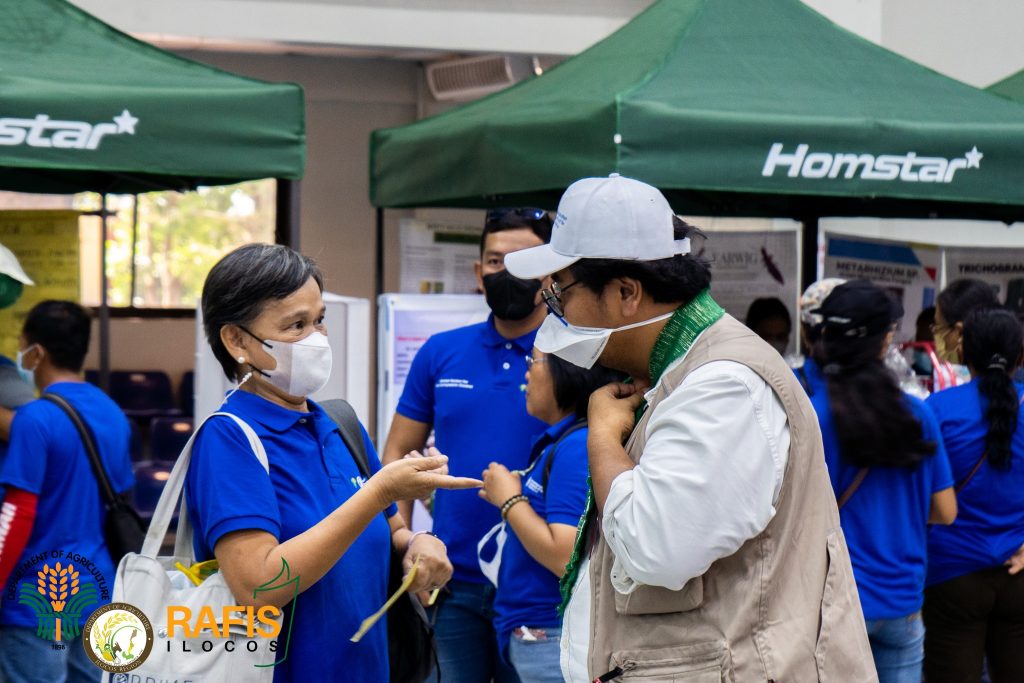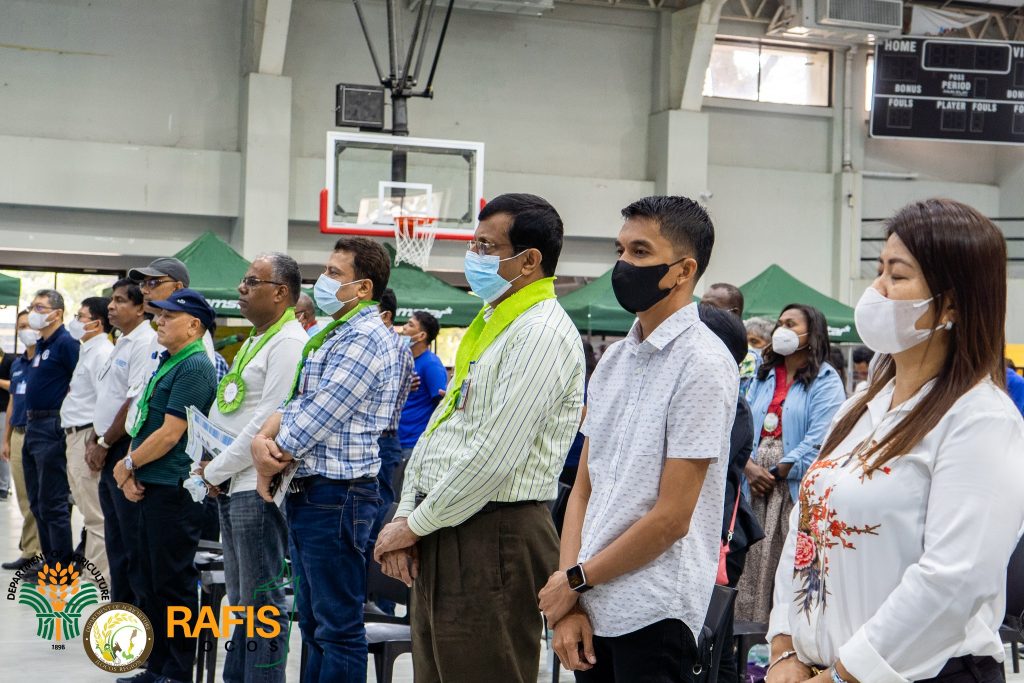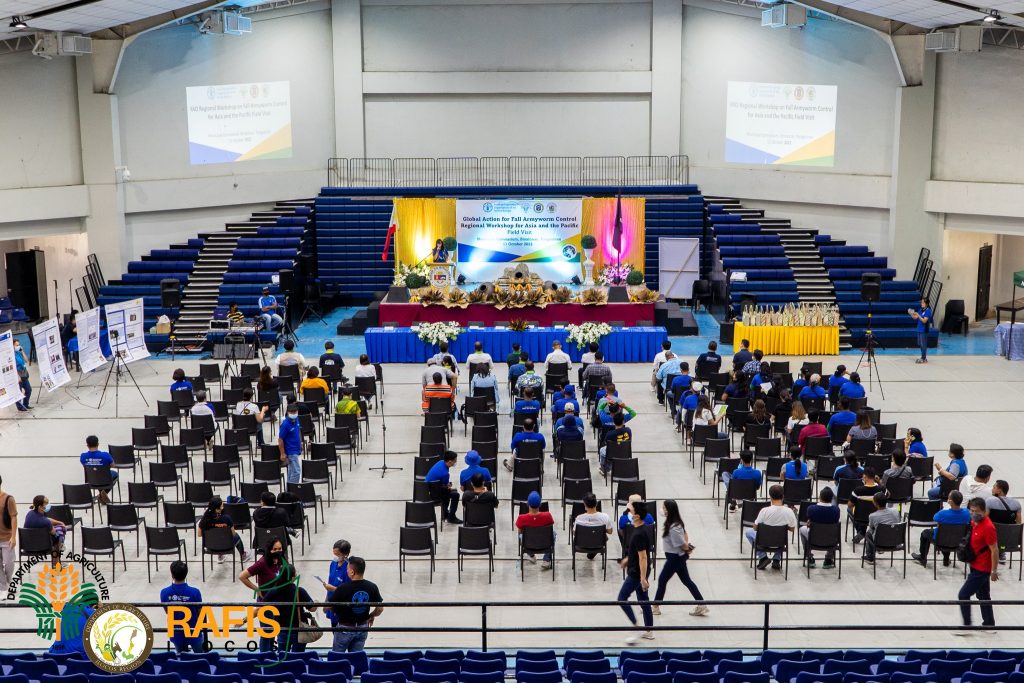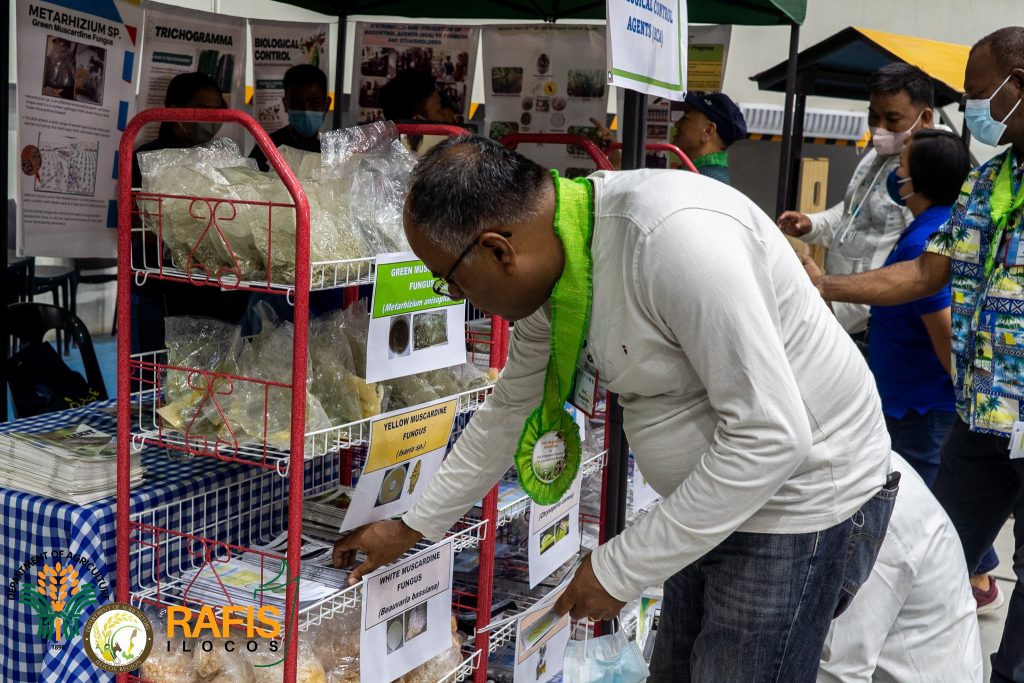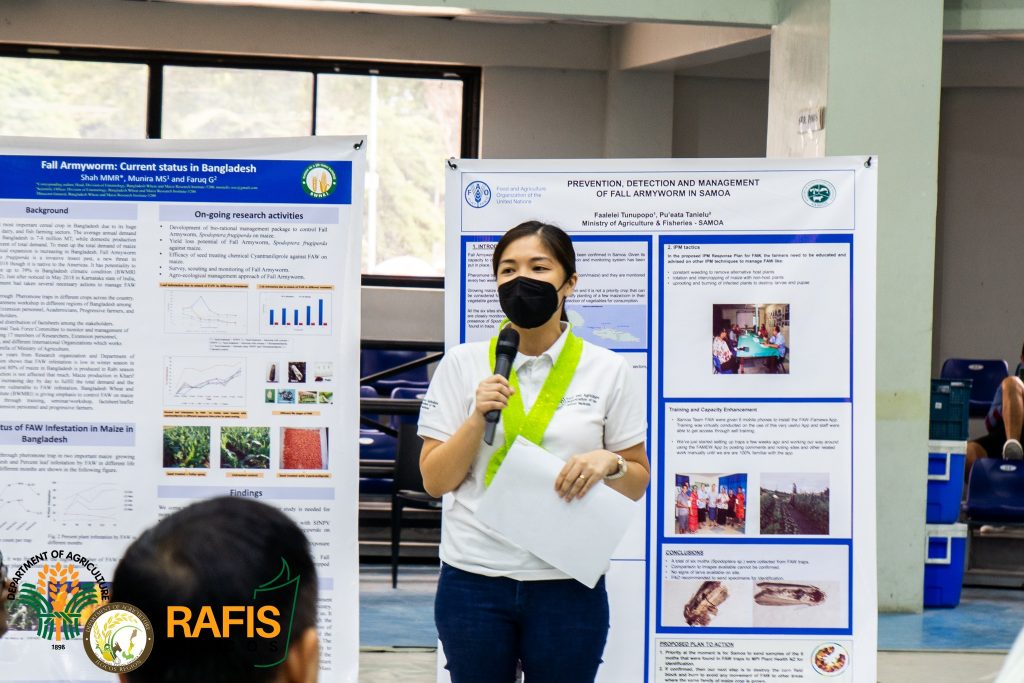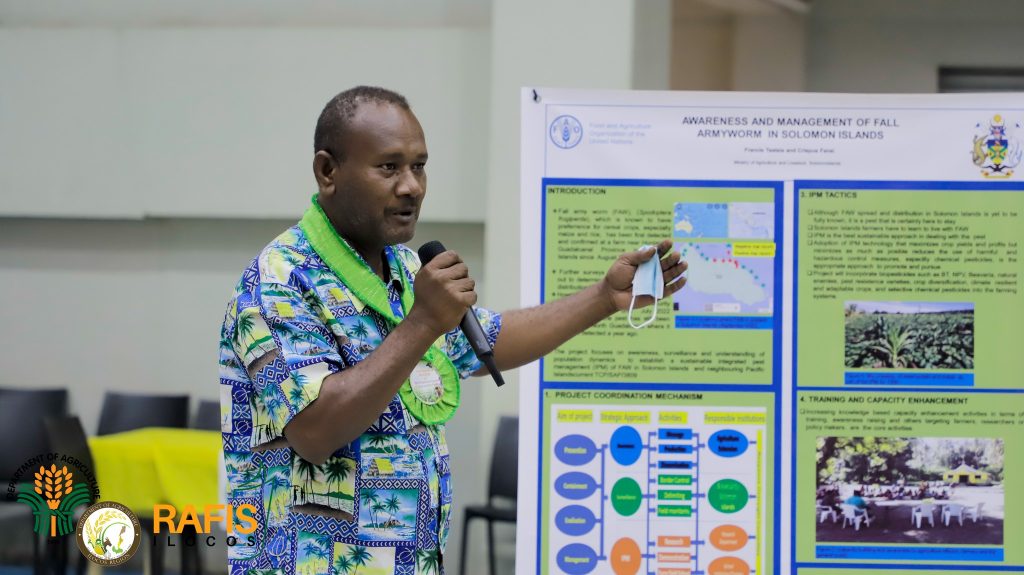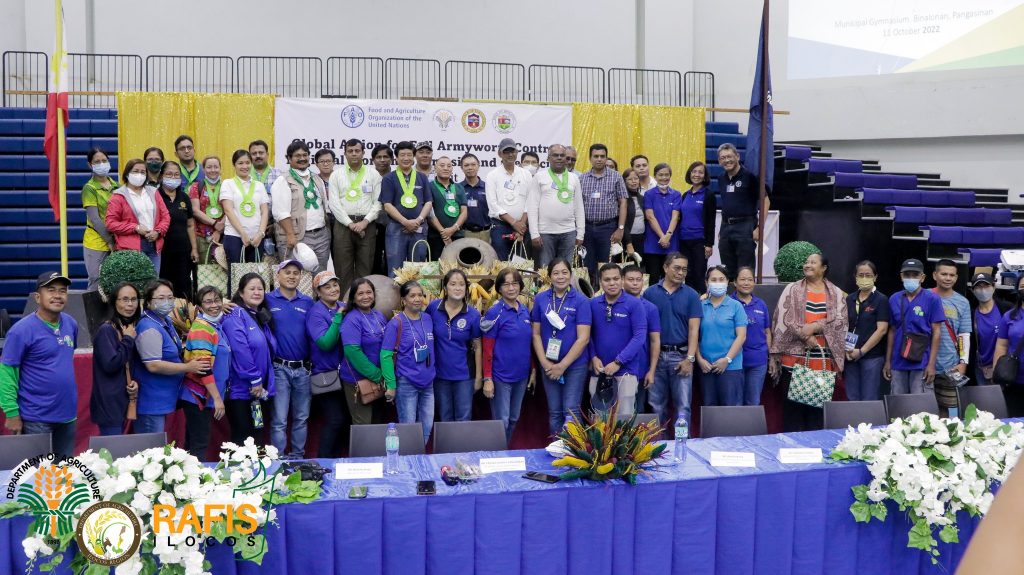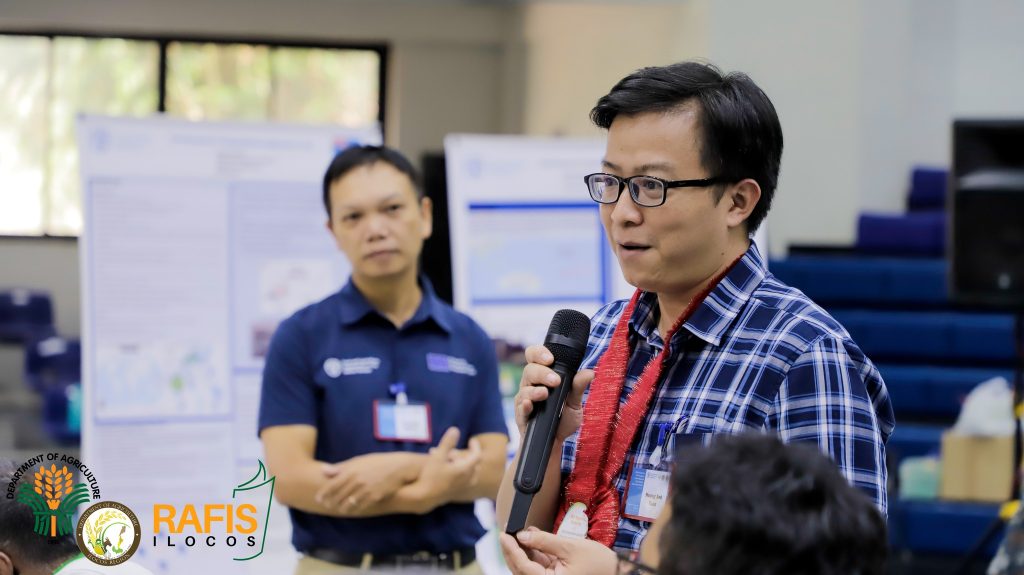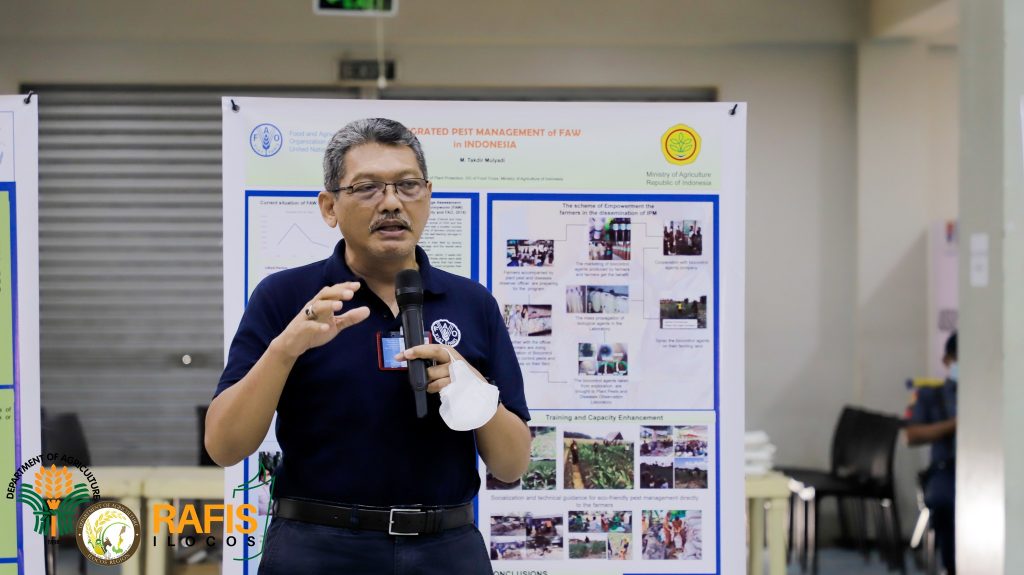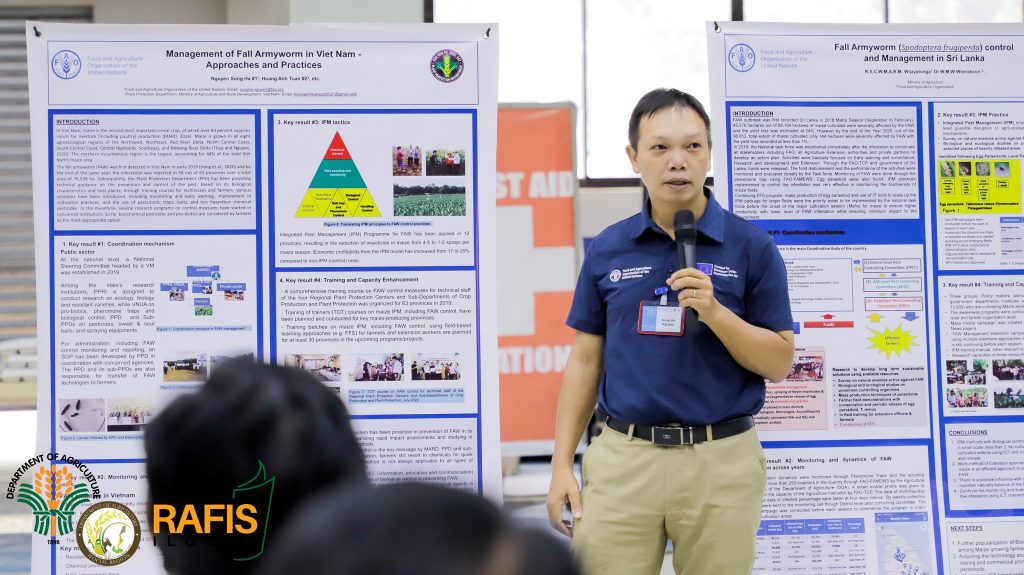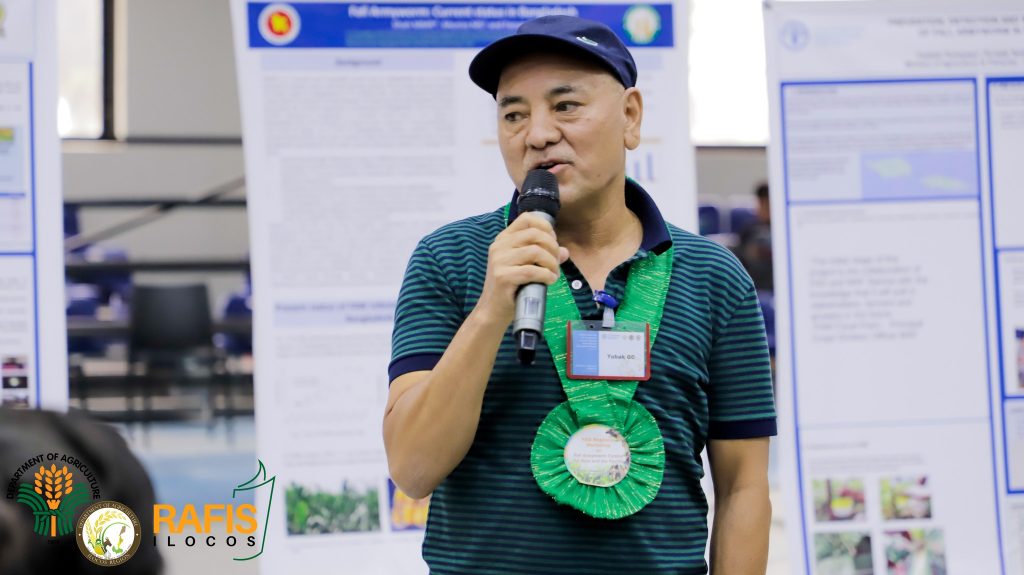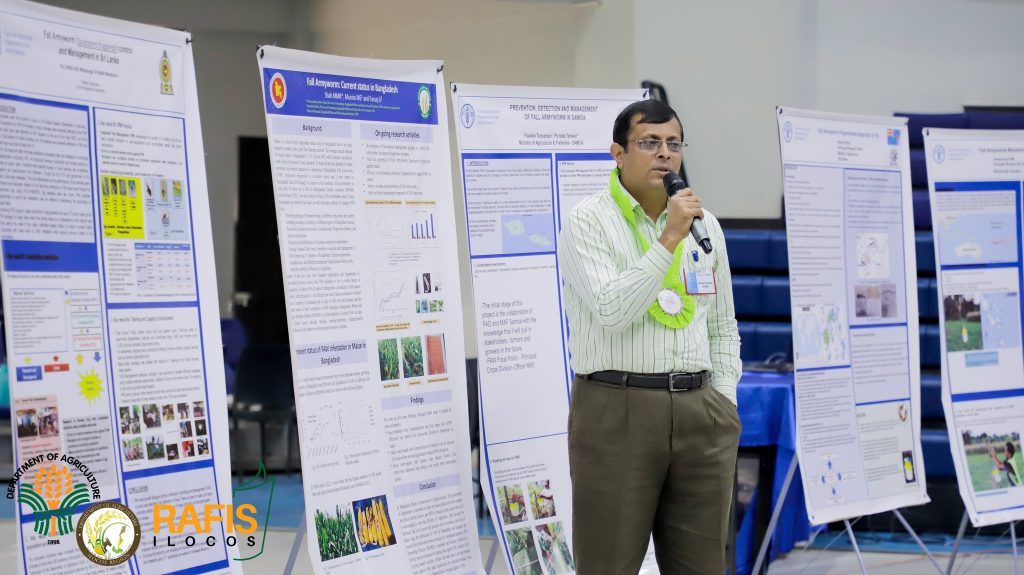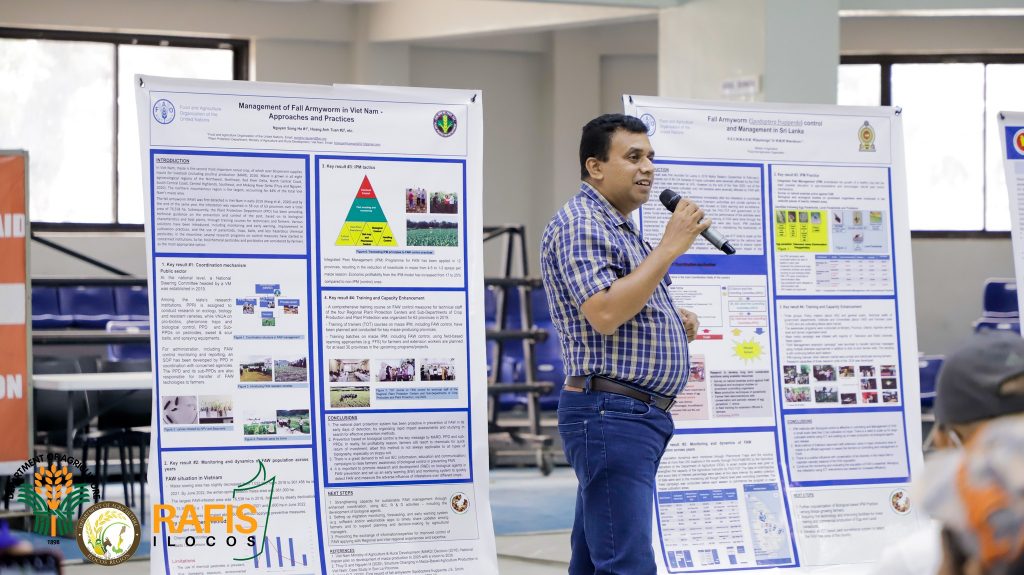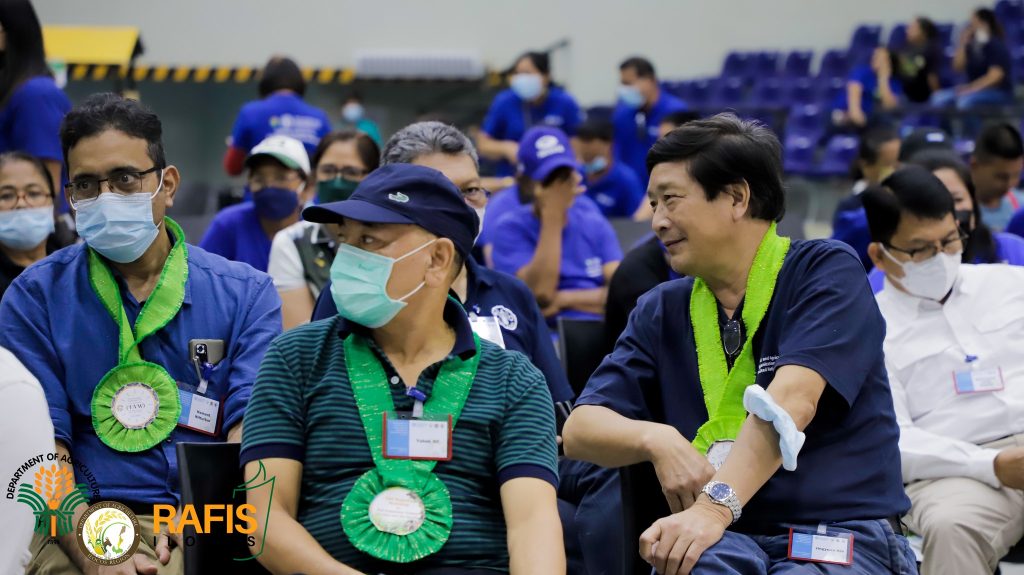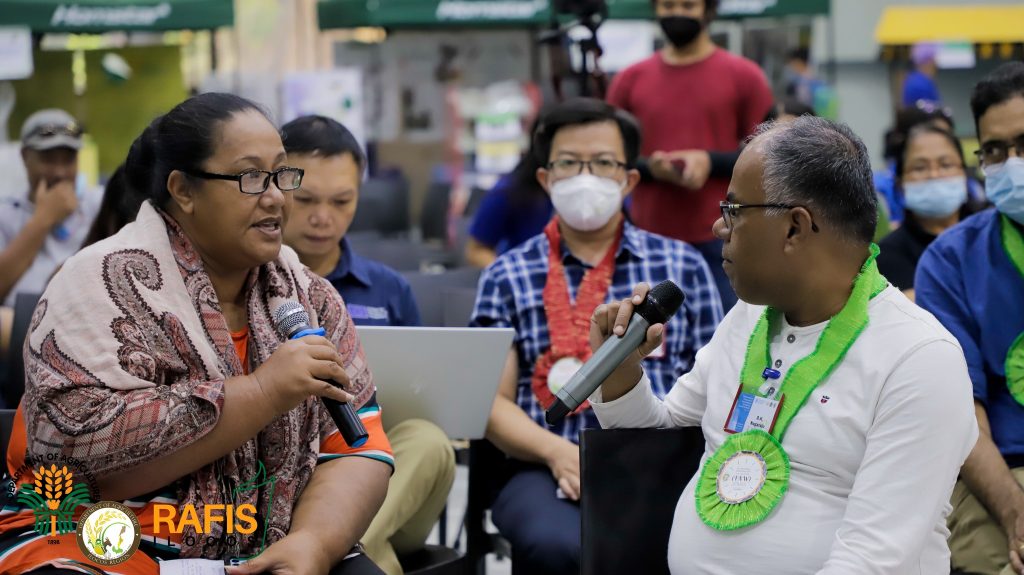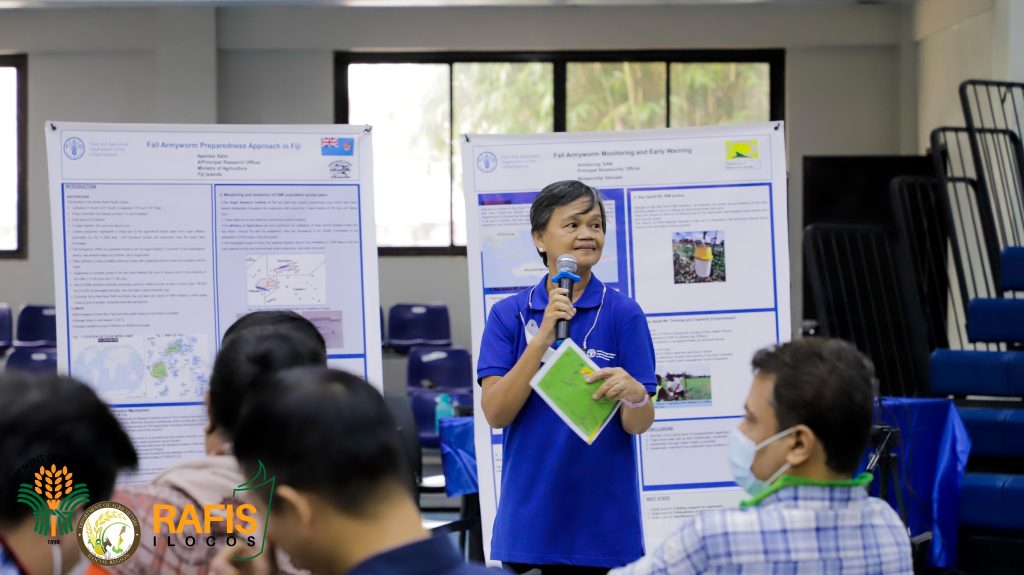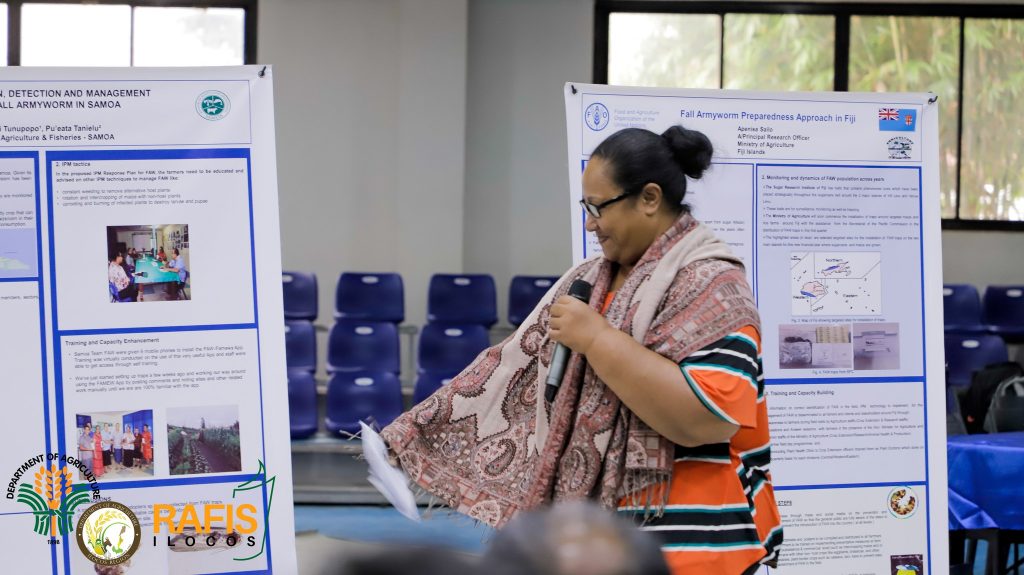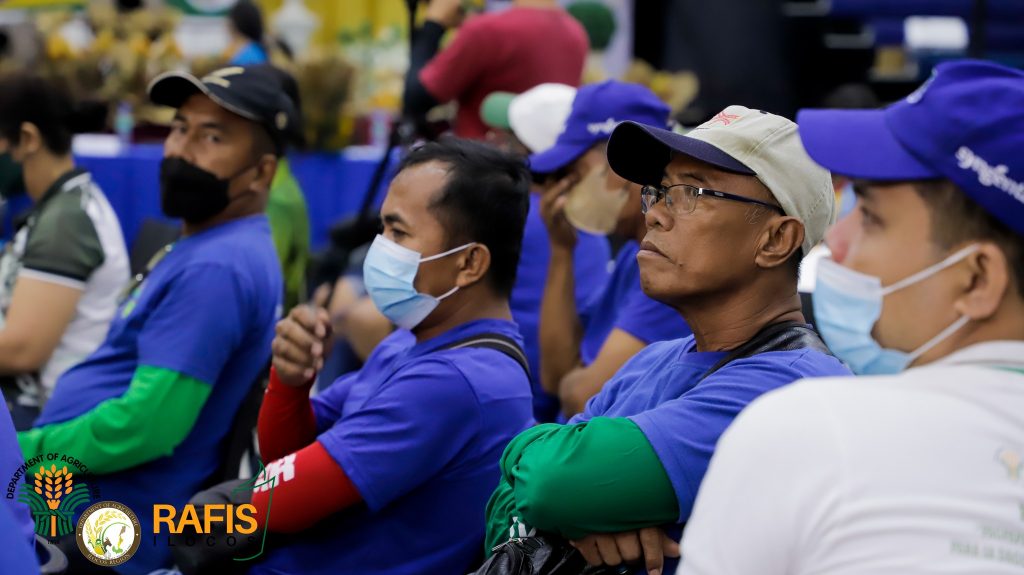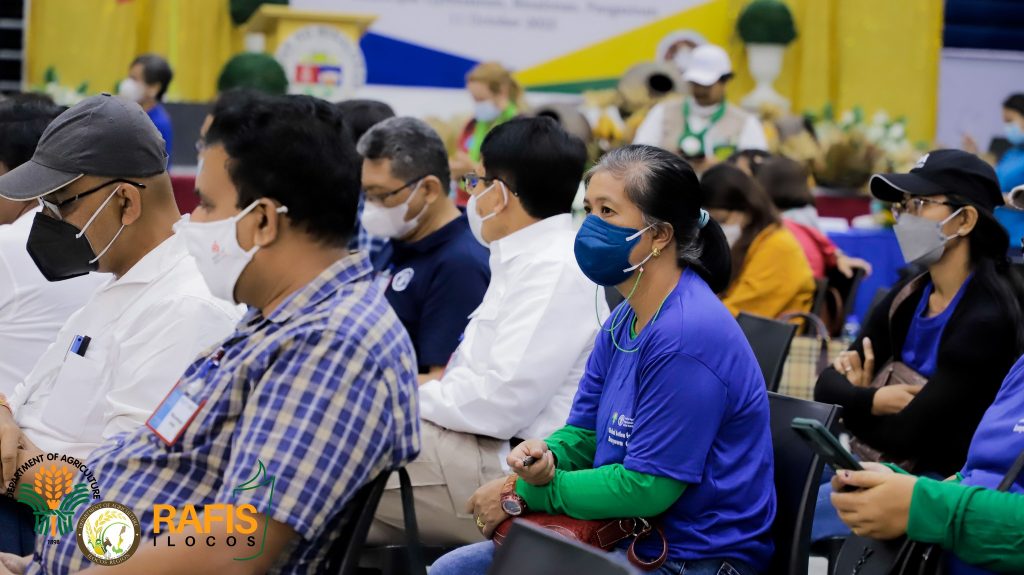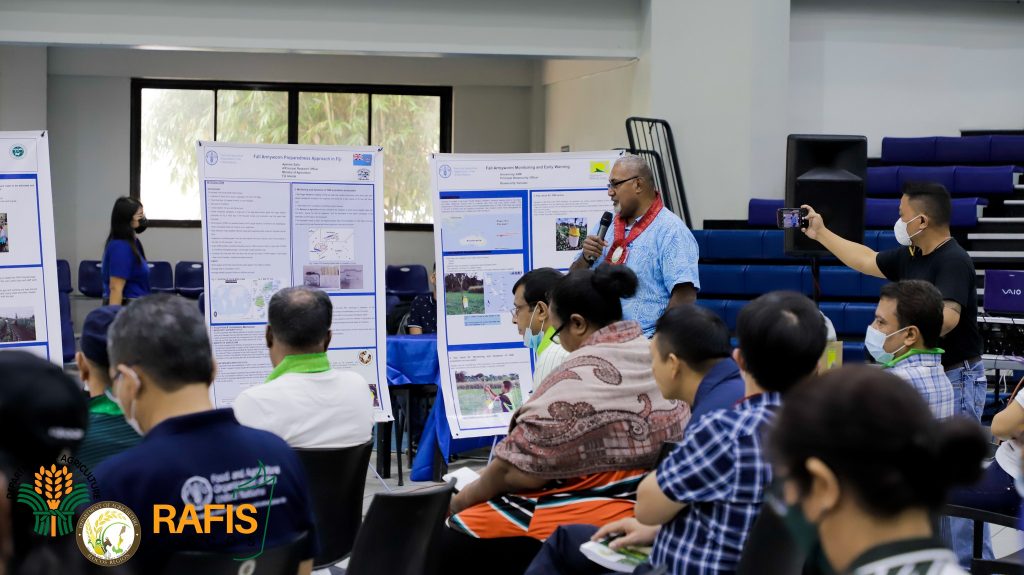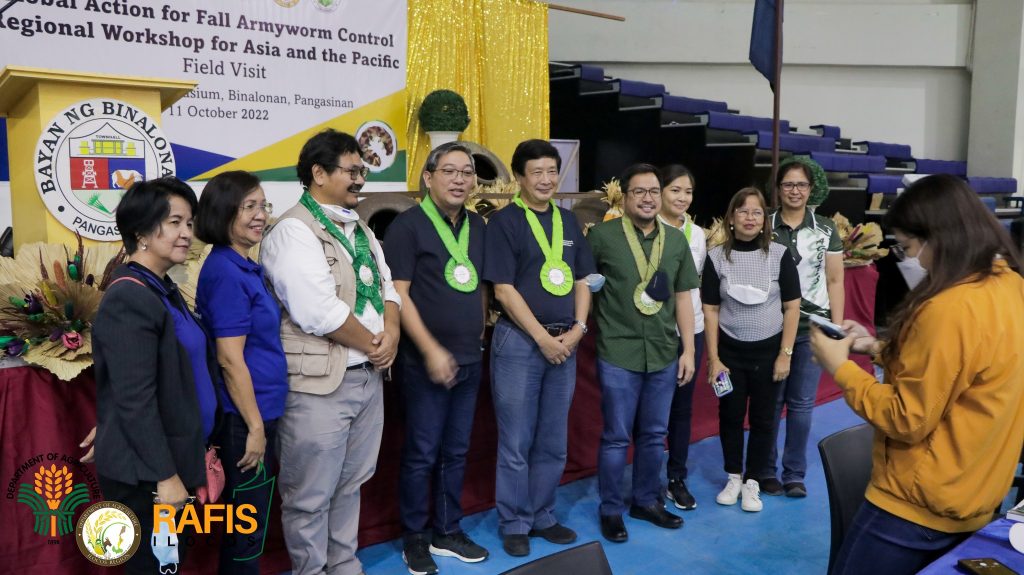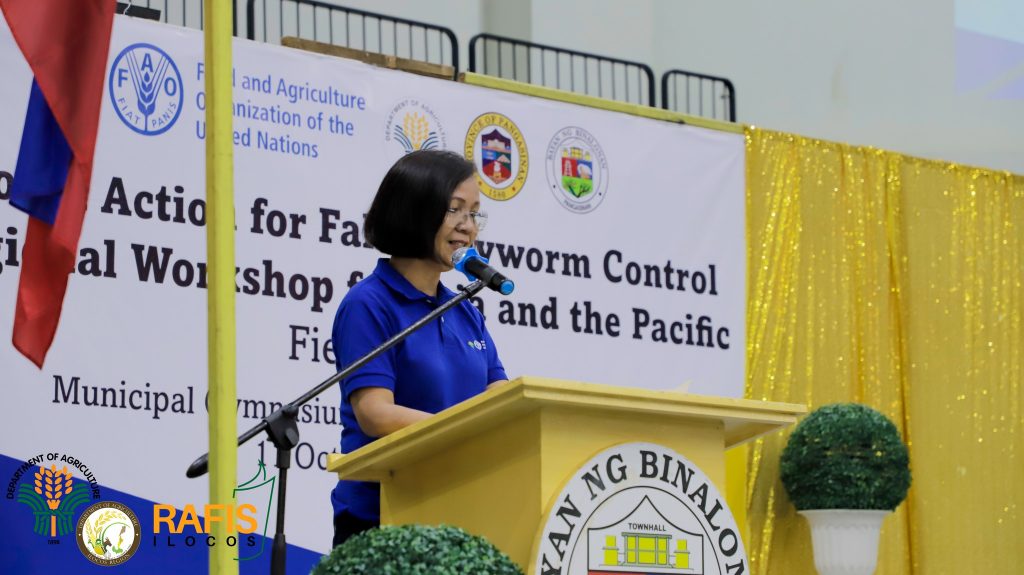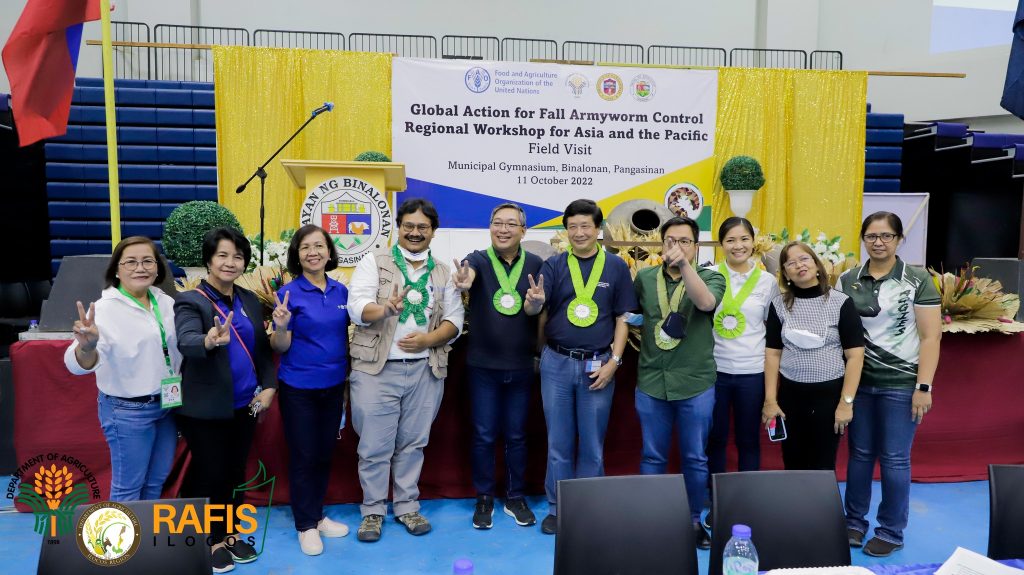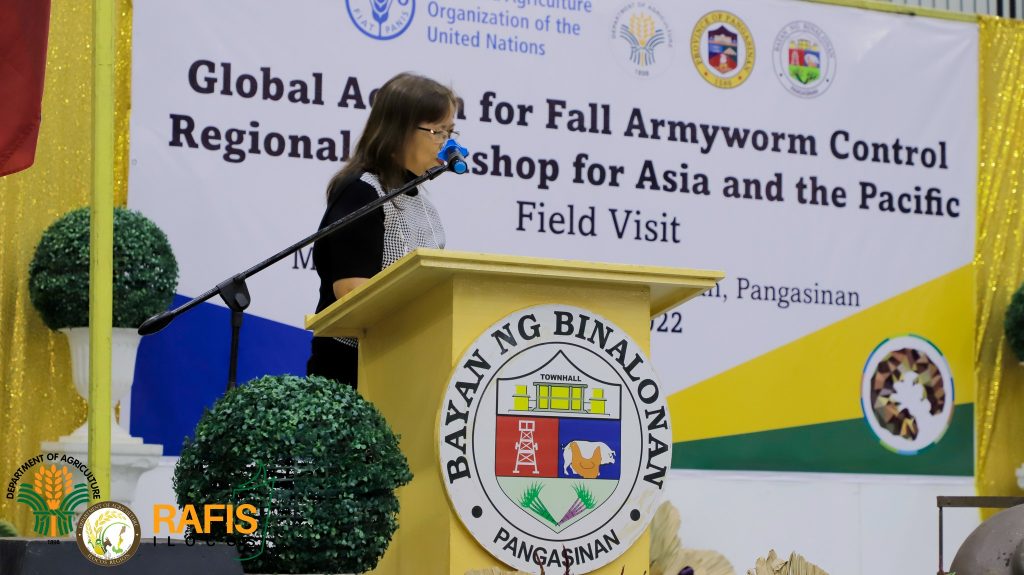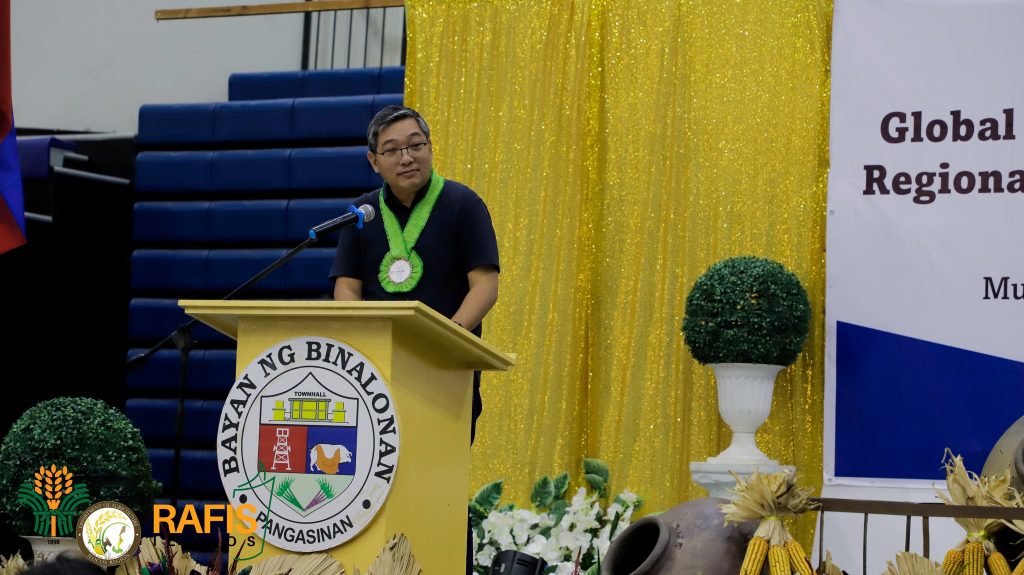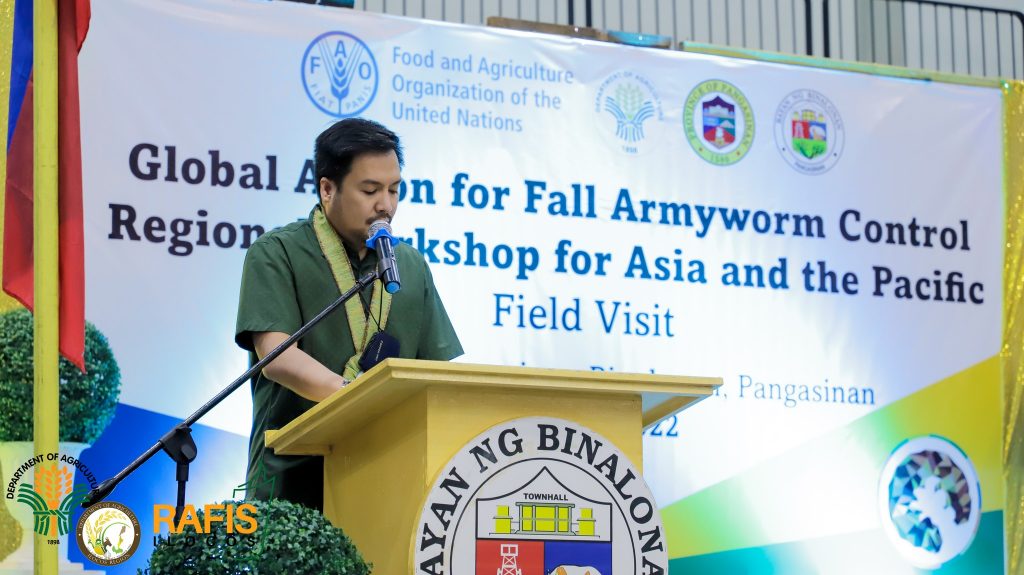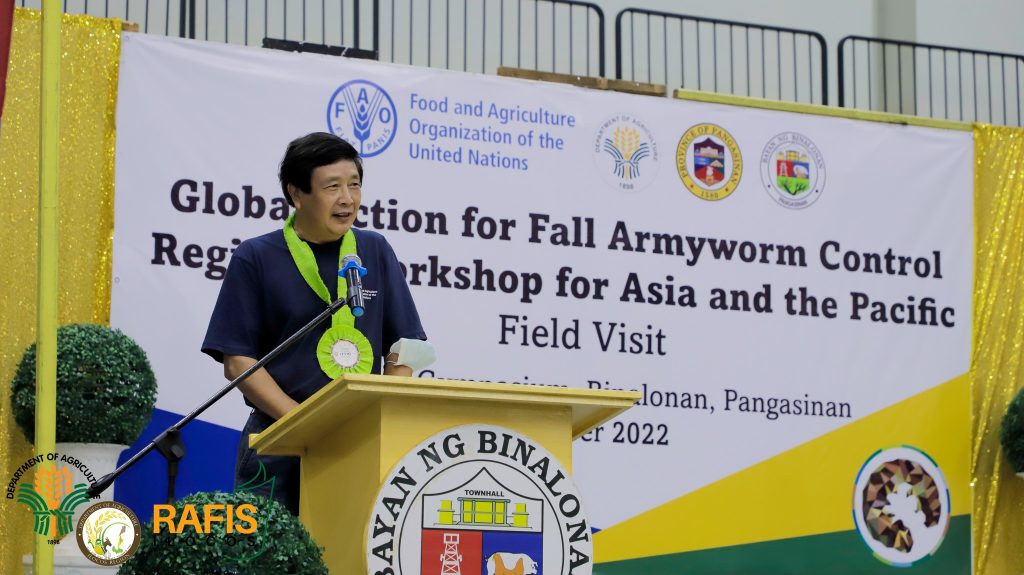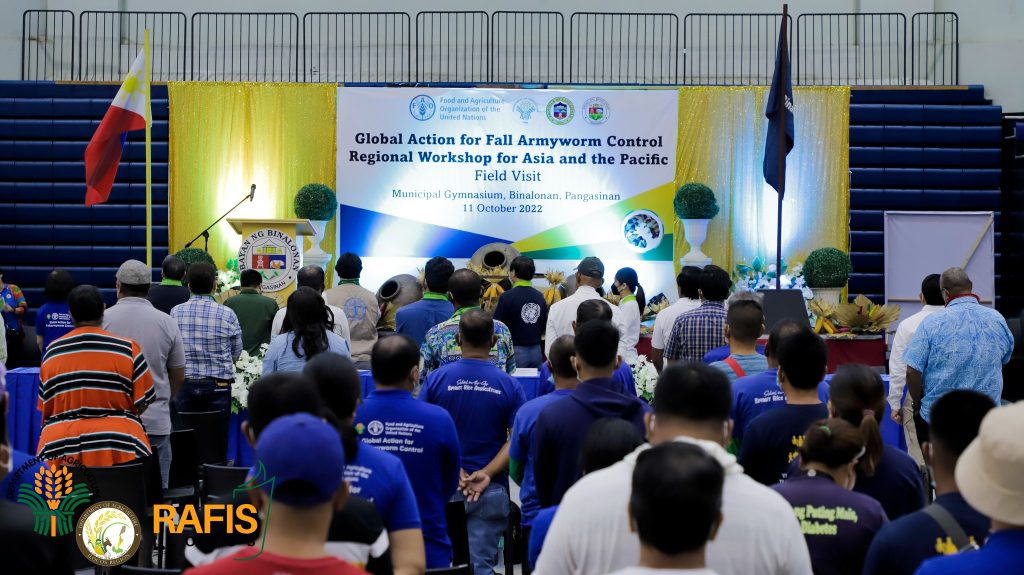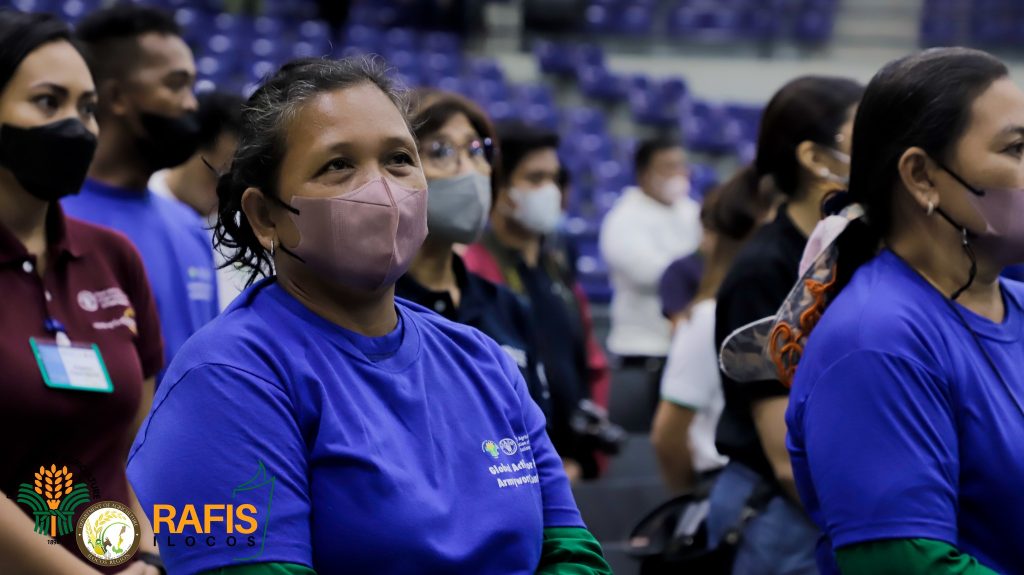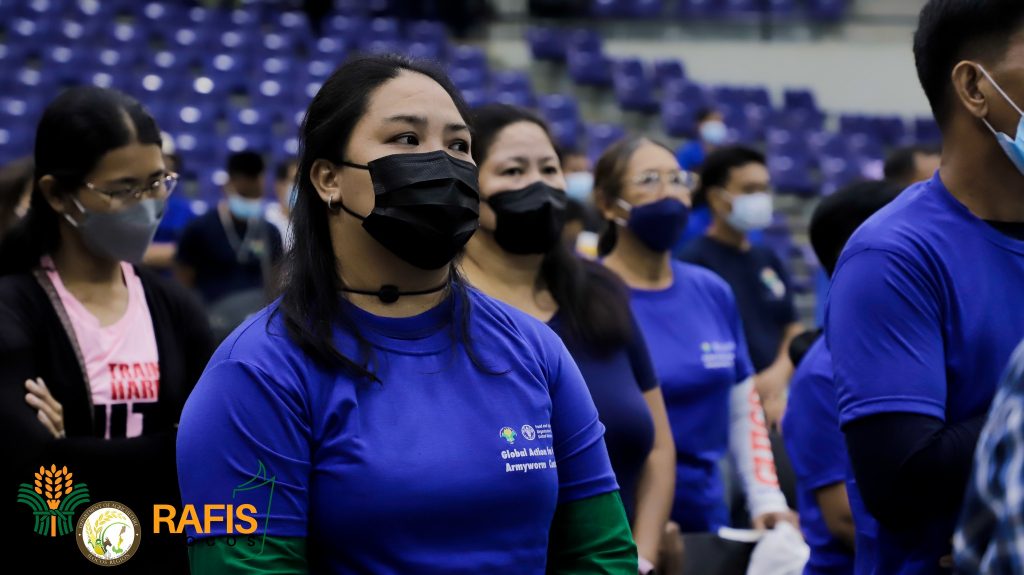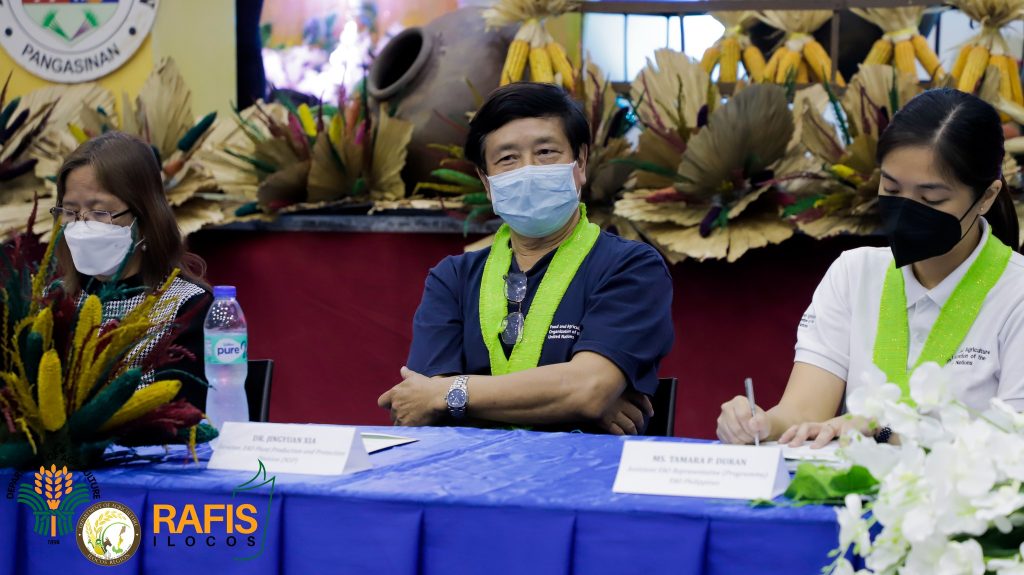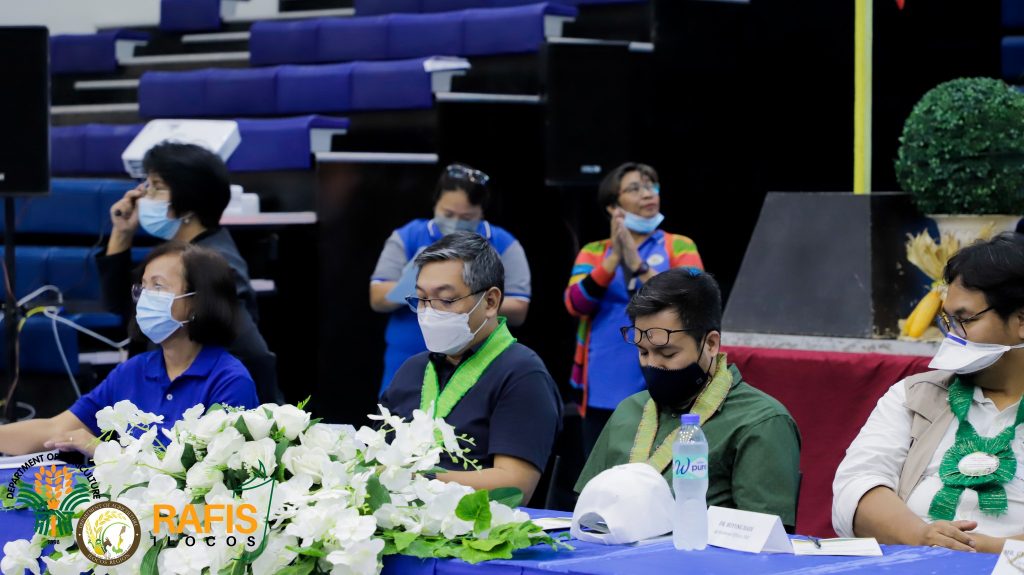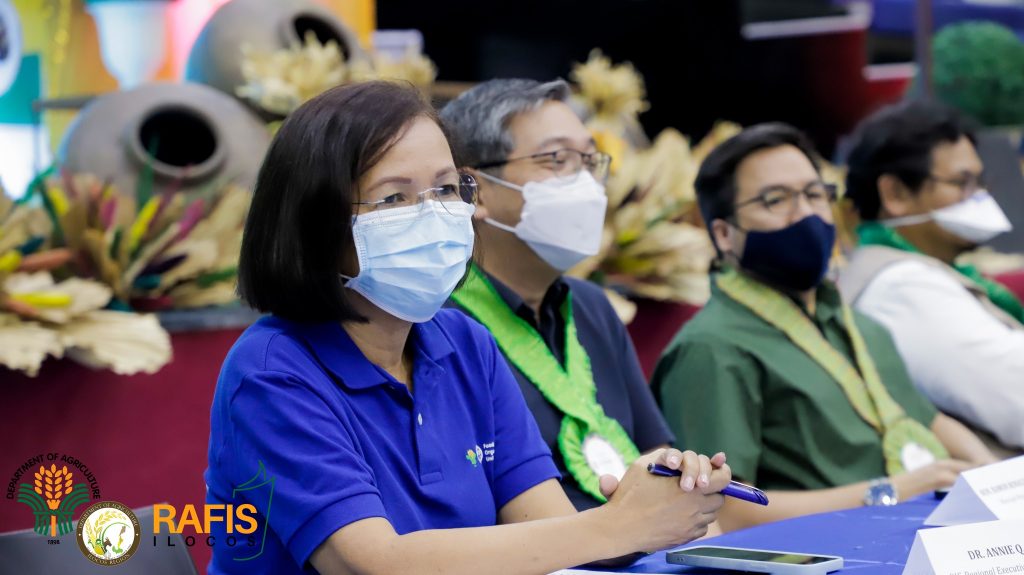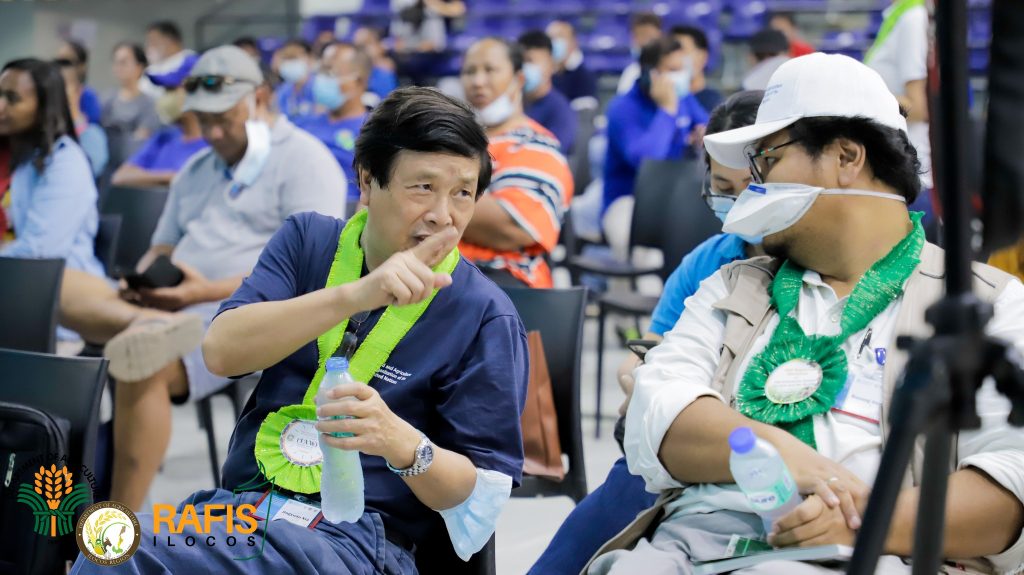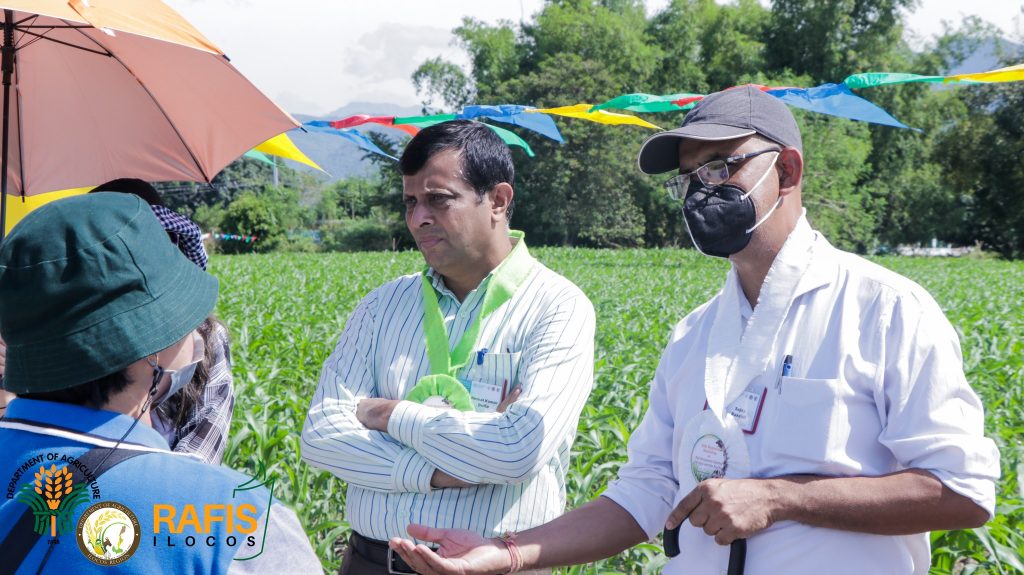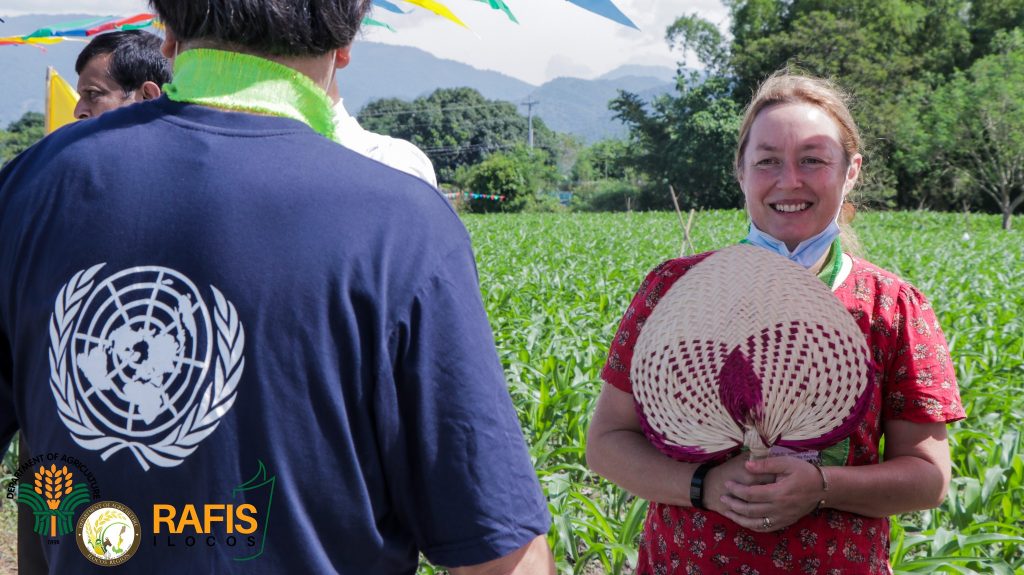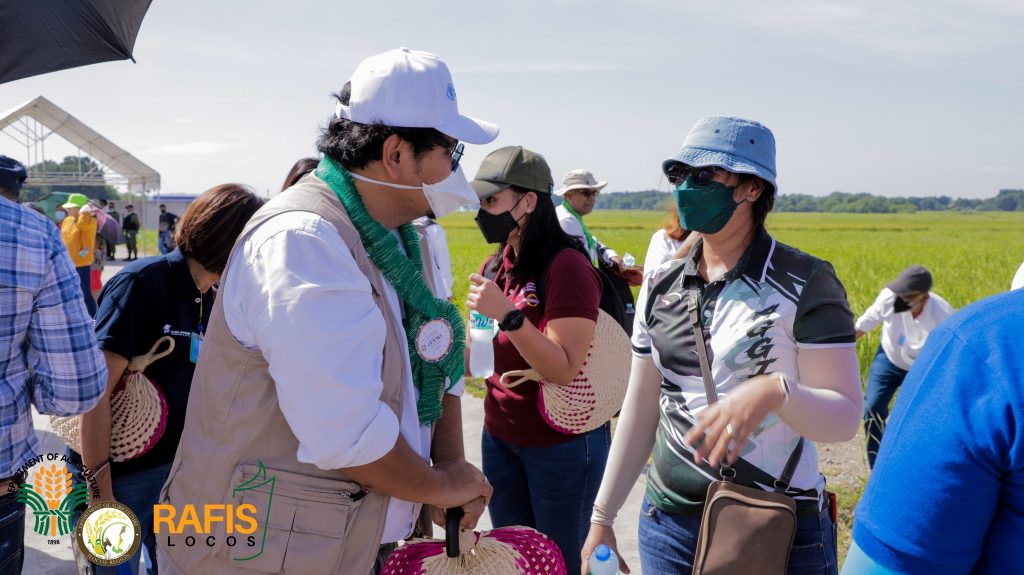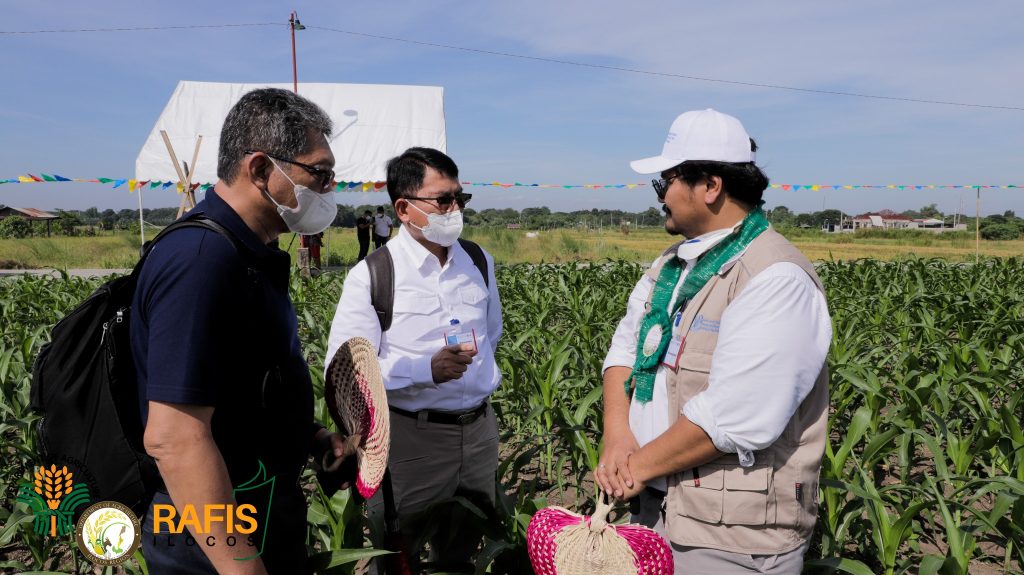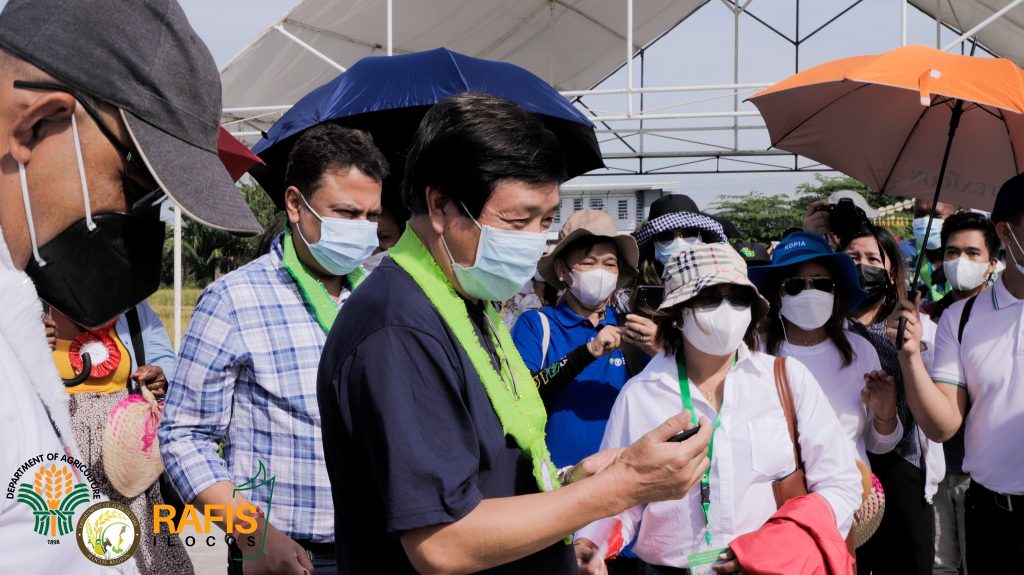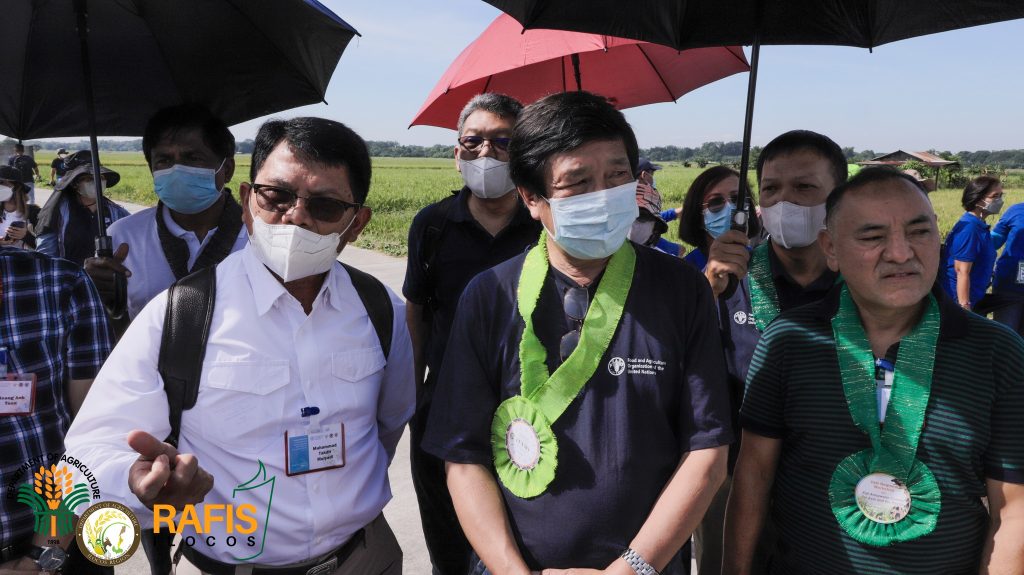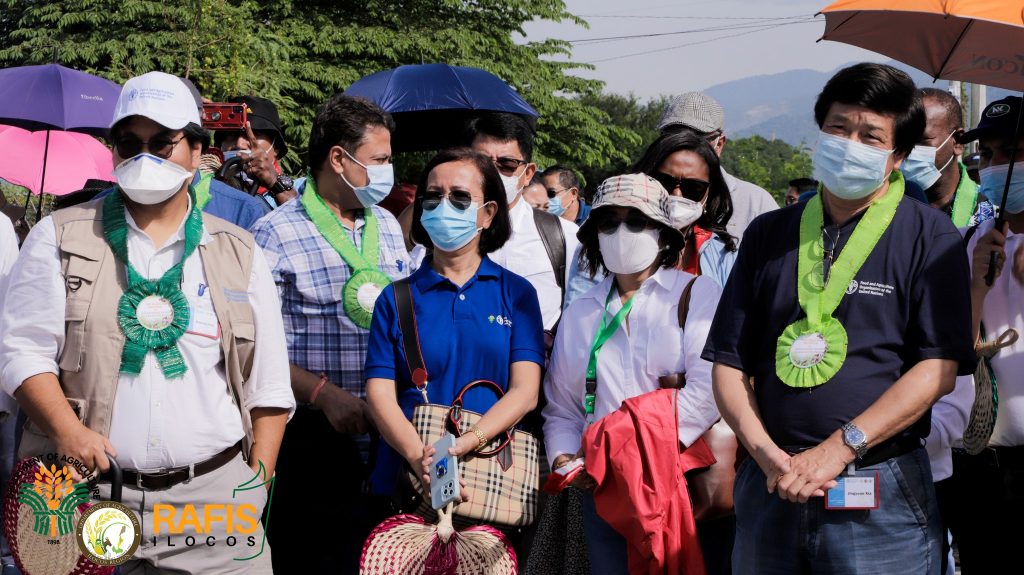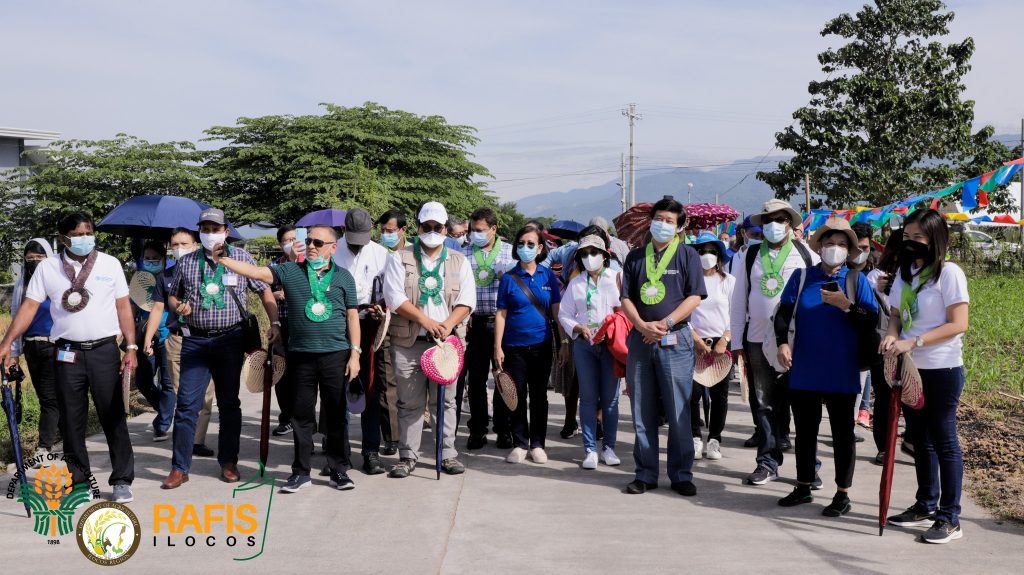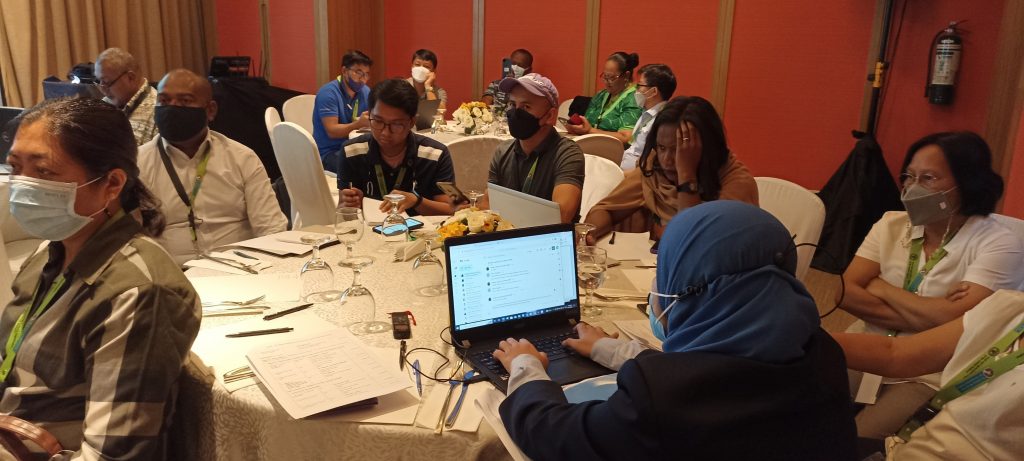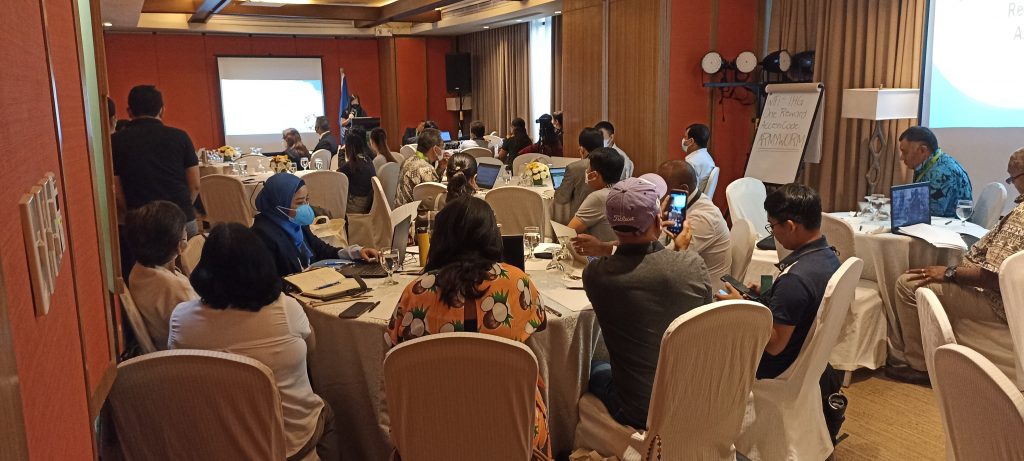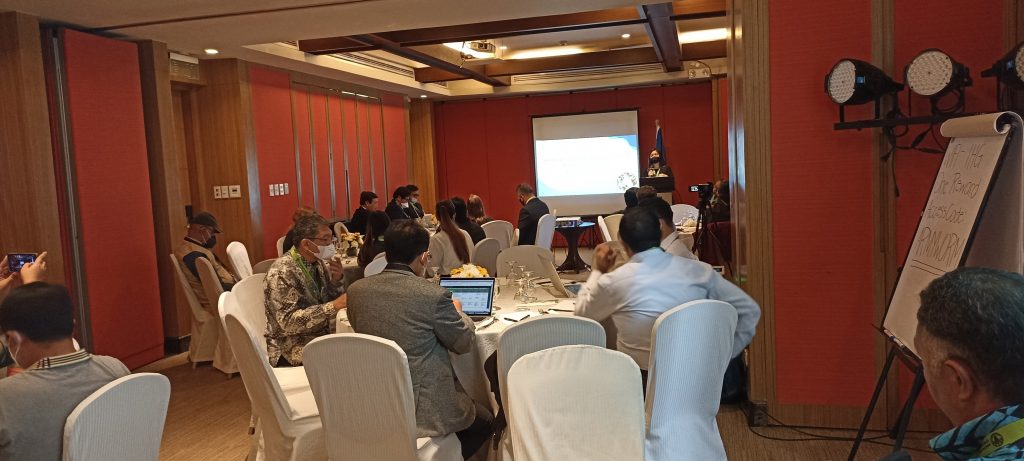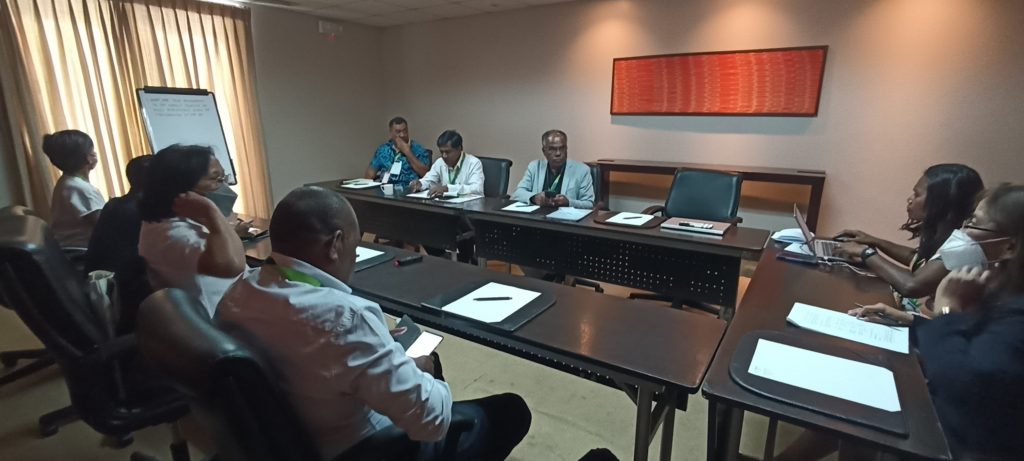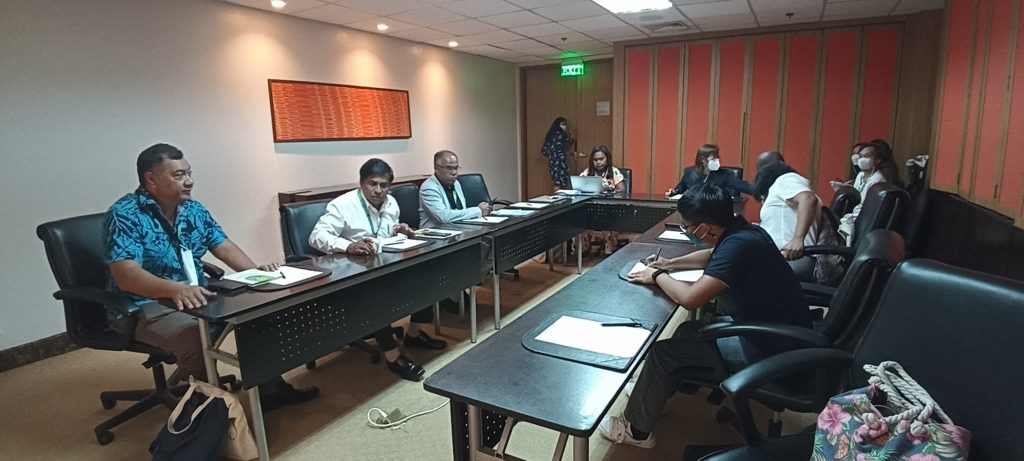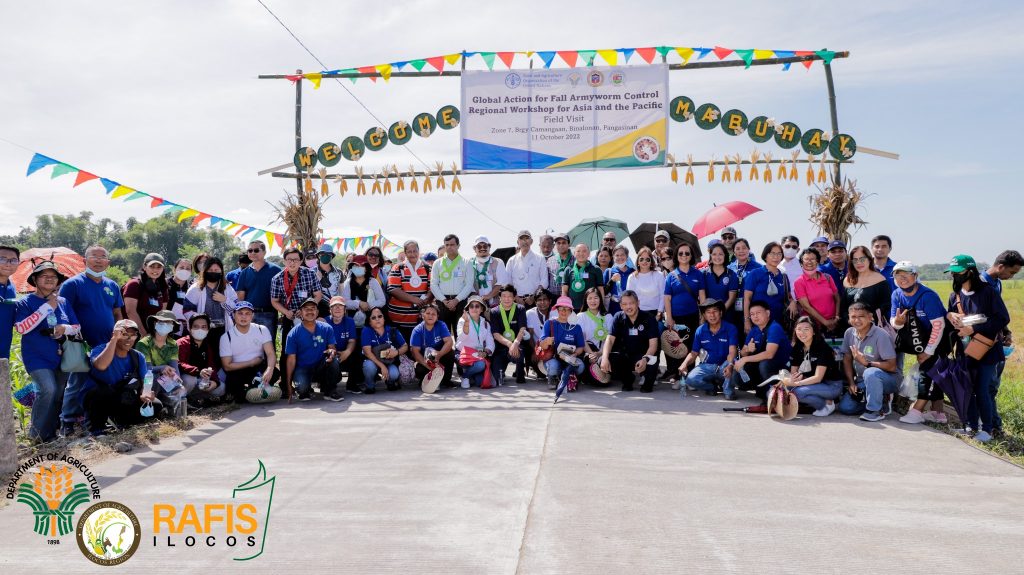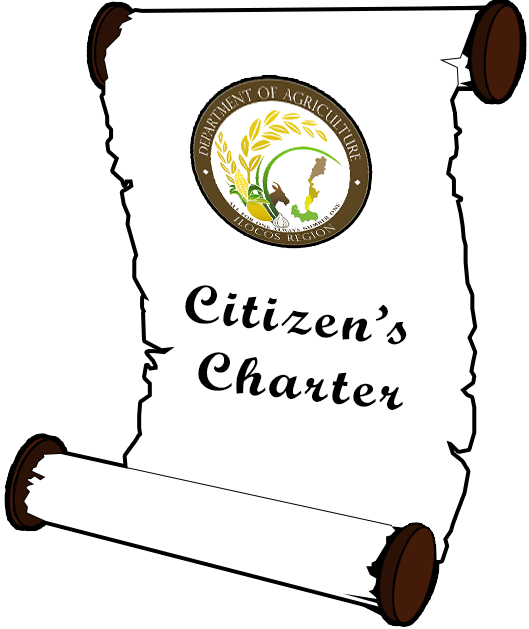Under the program initiated by the Food and Agriculture Organization (FAO) on Global Action for Fall ArmyWorm (FAW) Control for the Asia and the Pacific, a delegation of around 20 plant protection experts from FAO UN was welcomed by the Department of Agriculture Regional Field Office 1, Bureau of Plant Industry and FAO Philippines, Tuesday (October 11, 2022).
Included in the program was the field visit at Barangay Camanggaan, Binalonan, Pangasinan wherein the farmers showcased the technologies they learned during their Farmers’ Field School days in controlling the fall armyworm.
Four technology options (treatments) with the use of biological control agents (BCA) to control fall armyworm were established in a 1.3-hectare farm owned by Mr. Benjamin Tomboc.
The first option uses the combination of luring trap (applied at 15-21 days after planting or DAP) + Trichogramma (15-21 DAP; 21-35 DAP) + Beauvaria bassiana (22-28 DAP) + nuclear polyhedrosis virus (NPV) (29-35 DAP; 36-42 DAP). The second option also uses lure trap, trichogramma, metarhizium anisopliae and NPV at 15-21 DAP, 15-21 DAP & 21-35 DAP, 15-21 DAP, and 29-35 DAP & 35-42 DAP, respectively. While the third option uses lure trap, trichogramma, NPV, and Beauvaria bassiana at 15-21 DAP, 15-21 DAP & 21-35 DAP, 22-23 DAP, and 29-35 DAP & 36-42 DAP, respectively. And the last option showcased was the use of a lure trap at 15-21 DAP, the application of trichogramma at 15-21 DAP & 21-35 DAP, and the application of Bacillus thuringiensis at 22-28 DAP & 36-42 DAP.
Through this activity, the UN delegates and the farmers were able to interact and learn from the best management practices of each participating country.
Following the field visit, a program proper was held at Ramon J. Guico, Sr. Sports and Civic Center, which was joined by Mr. Von Mark Mendoza, Political Affairs Officer and representative of Pangasinan Governor Ramon V. Guico III, Binalonan Mayor, Ramon Ronald V. Guico IV, who delivered his opening remarks and came in full support with his Vice Mayor and Sangguniang Bayan Members, and Pangasinan Provincial Agriculturist Ms. Dalisay Moya, among others.
Mr. Jingyuan Xia, Director of the FAO Headquarters’ Plant Production and Protection Division, expressed satisfaction with the results of the Global Action on Fall Army Worm (GA-FAW) project activities in the Philippines. He mentioned three major impressions that is attributed to the successful implementation of the project in the country and that is because the Philippines has excellent implementation and cooperation, excellent innovation and excellent communication.
“Based on the things I learned while interacting with the farmers earlier, I must say that the Philippines is the most excellent and most successful demonstration country in the world. I hope all of you from Asia and the Pacific who have come here will learn something from the Philippines”, he said.
Dr. Hermenegilda A. Gabertan, Assistant Director of the Bureau of Plant Industry represented Mr. Gerald Glenn Panganiban, OIC – Director of Bureau of Plant Industry and Hon. Domingo F. Panganiban, DA Senior Undersecretary, also provided information on the state of GA-FAW in the Philippines.
She emphasized that the majority of the farmers in the field were actually putting what they had learned from the Farmer Field School program into practice. She also gave them the assurance that they would continue with all the help the department could provide.
Mr. Von Mark Mendoza, the current Political Affairs Officer in the Governor’s Office, represented Pangasinan Governor Ramon V. Guico III and expressed Pangasinan’s commitment to fully supporting the FAO’s GA-FAW program.
Meanwhile, Dr. Annie Q. Bares recognized everyone who has worked hard to start the program focusing on eradicating Fall Army Worm with the goal of having a FAW-free and a food-secured Philippines in the coming years.
In the afternoon, the farmers were also given the opportunity to hear the current status, approaches, and practices, as well as the control and management of the Fall Army Worm from the delegates coming from other Asian countries such as Vanuatu, Fiji, Samoa, Bangladesh, Sri Lanka, Vietnam, Indonesia, and the Solomon Islands. The presentation was facilitated by Ms. Wilma Cuaterno, FAO Philippines’ National IPM Specialist.
“Controlling FAWs takes concerted efforts. There is action needed from the government, from the workers and most importantly from the communities themselves.” said Ms. Tamara P. Duran, Assistant FAO representative of the FAO Philippines. She thanked everyone for sharing their knowledge and expertise with them, as well as the DA for their dedicated and extensive support and collaboration with FAO.
Meanwhile, as a continuation to the field visit, a Regional workshop on Fall Armyworm Control for Asia and the Pacific was held at Holiday Inn, Makati Hotel on October 12, 2022.
The participants were divided into three groups for a group discussion on the policy and farmers, the IPM package validation and demonstration, and the communication and partnership.
Speaking on behalf of Senior Undersecretary Domingo F. Panganiban, BPI Director Glenn F. Panganiban said that the FAO’s Global Action on FAW is a much-needed response to control the said pest.
He also mentioned that the activity promotes the exchange of information among the nations of Asia and the Pacific on Integrated Pest Management techniques and technologies against FAW and it provides updates on the progress of GA on the demonstration countries to gather suggestions from the member nations.
In his conclusion, Mr. Xia once again commended the Philippines saying, “There are so many countries with fall armyworm and it’s not so impactful. This, I can say it’s very impactful. I can say that it’s fantastic, my unusual word for a field demonstration. The farmer is actively engaged from the very beginning to the end of the field demonstration. This is out of my expectation”., he beamed.
Over the 70 countries in Africa, Asia, and the Pacific that have reported FAW infestation over the years, eight countries including the Philippines were chosen as the pilot countries for the Global Action Plan. It is a global initiative to take radical, direct, and coordinated measures to strengthen prevention and sustainable pest control capacities at the global level as an urgent response to the rapid spread of FAW.###
